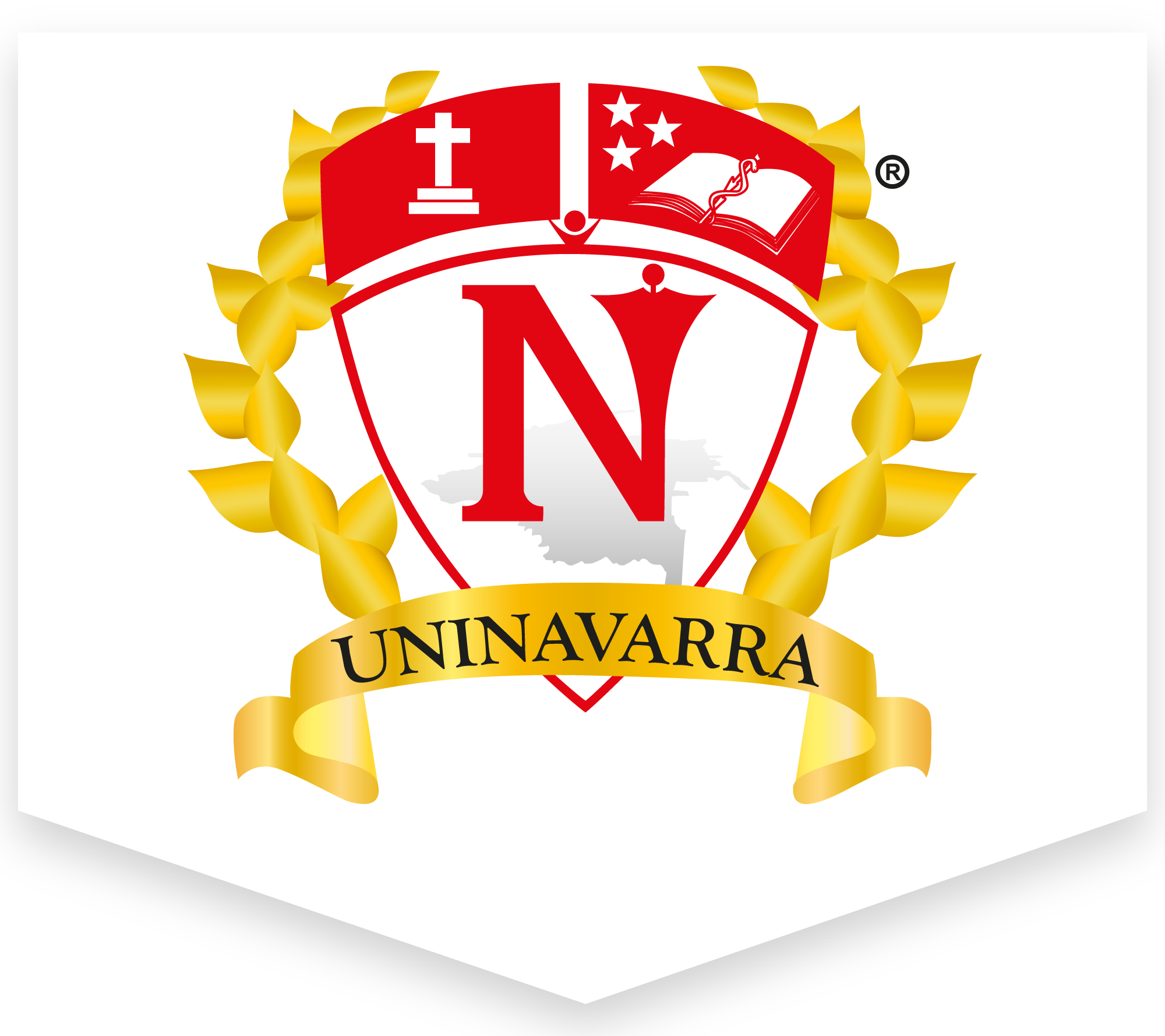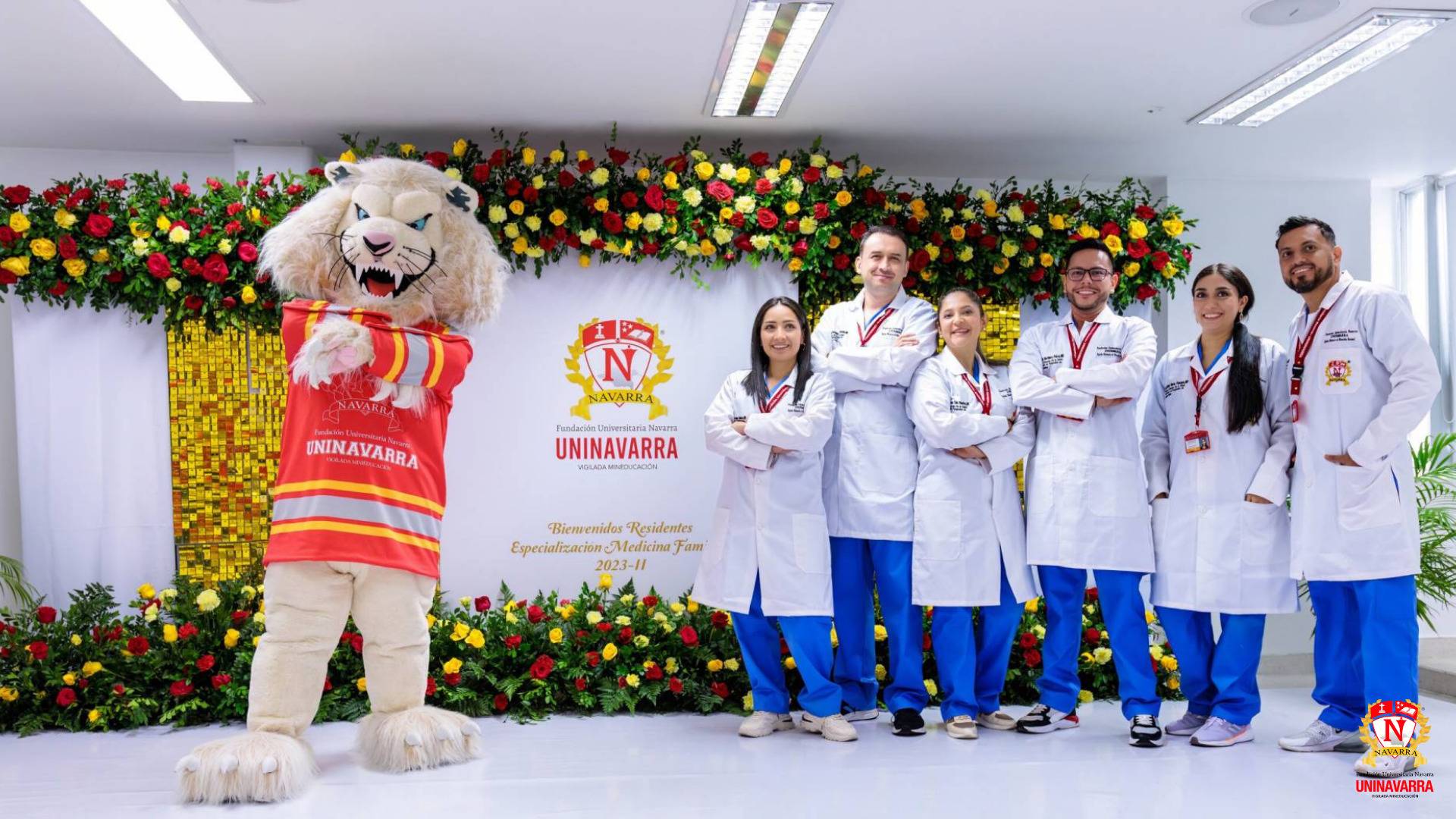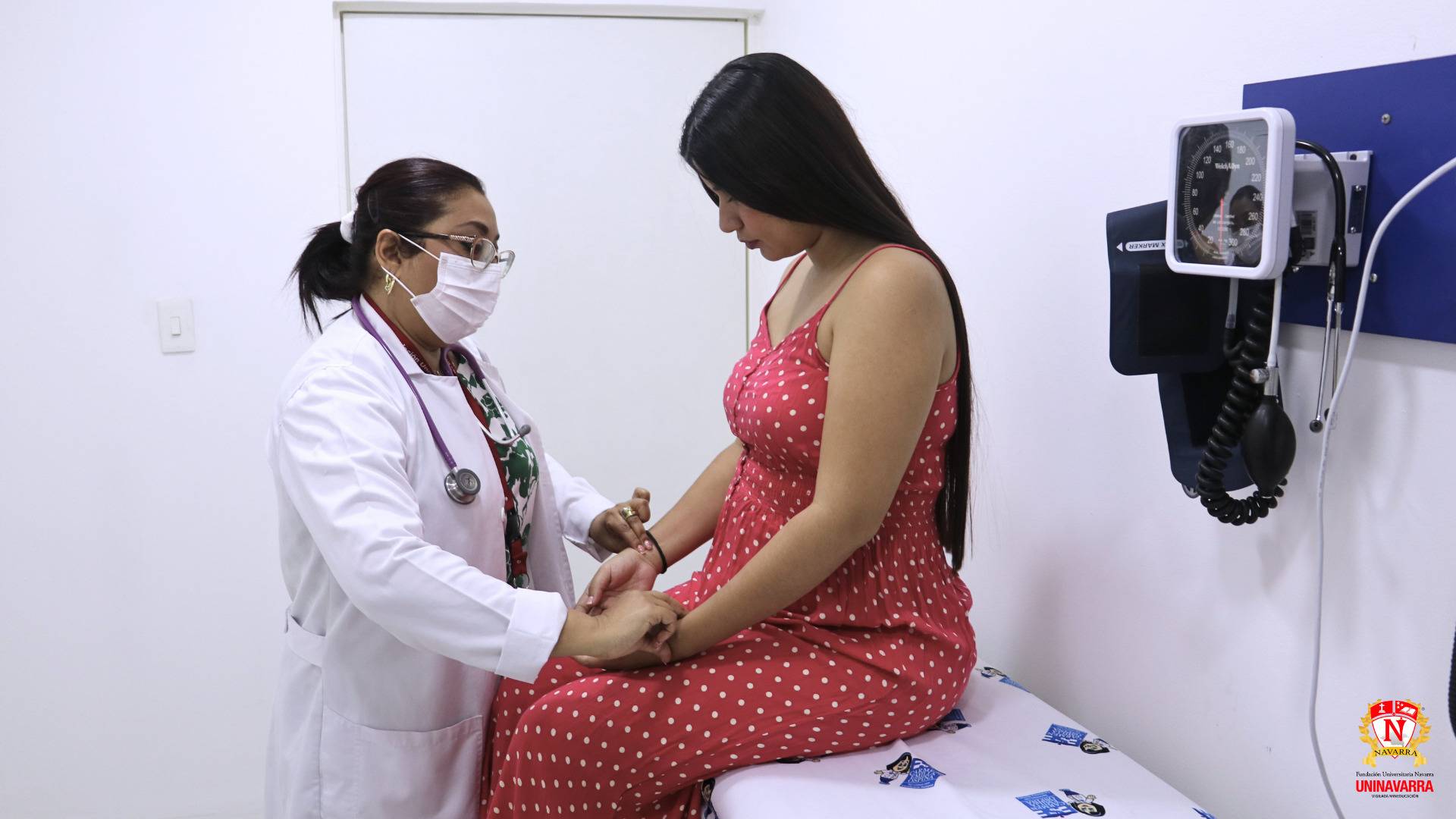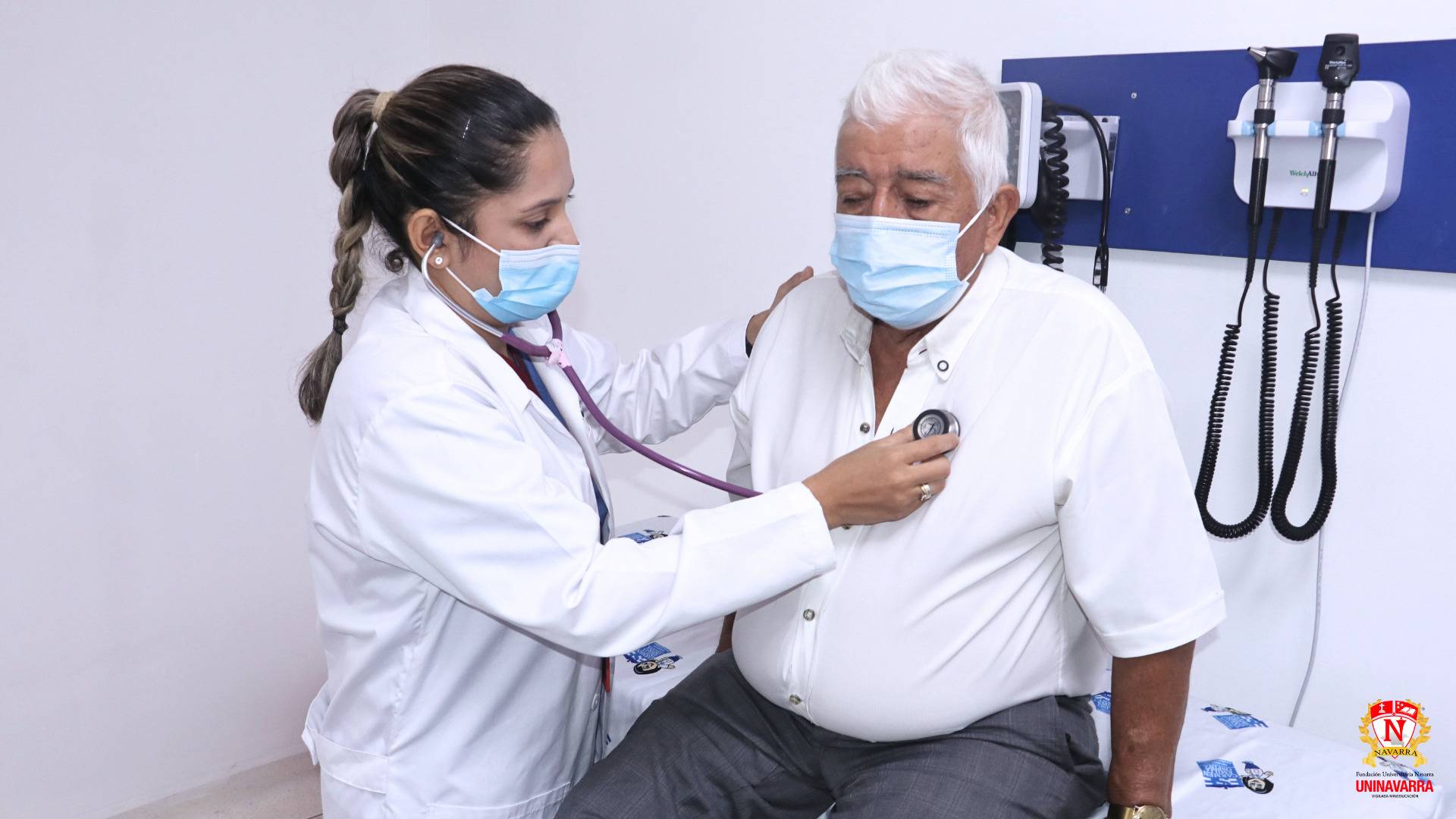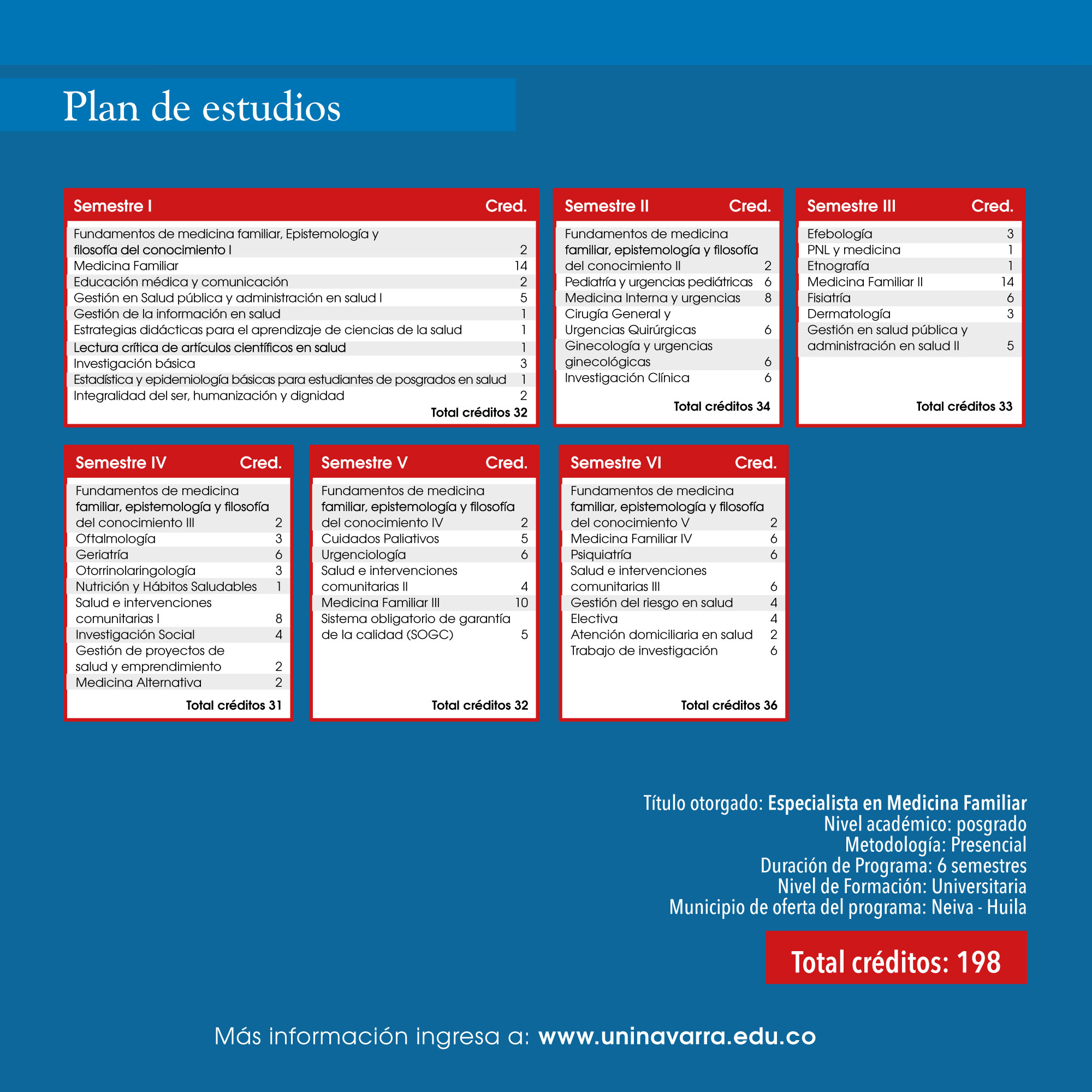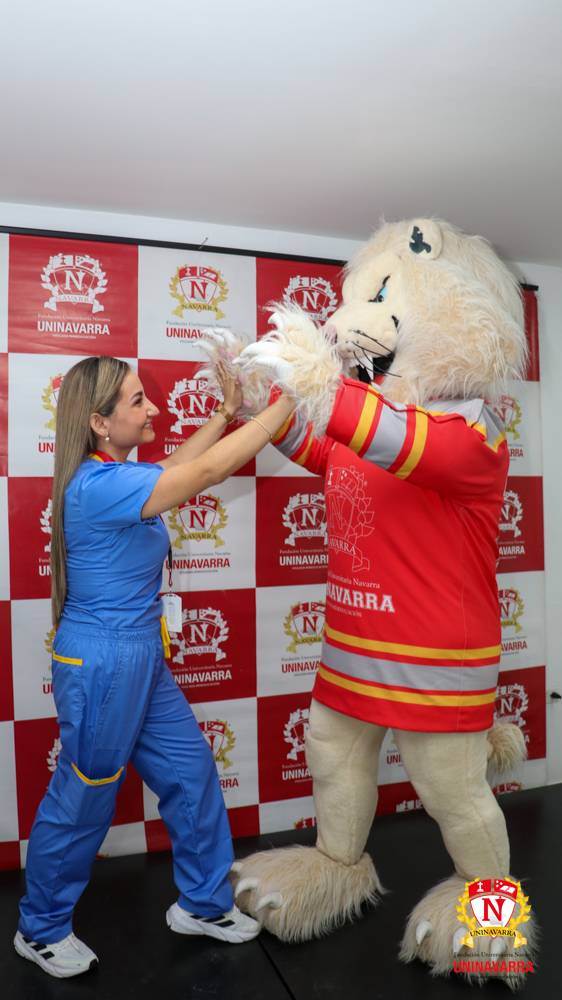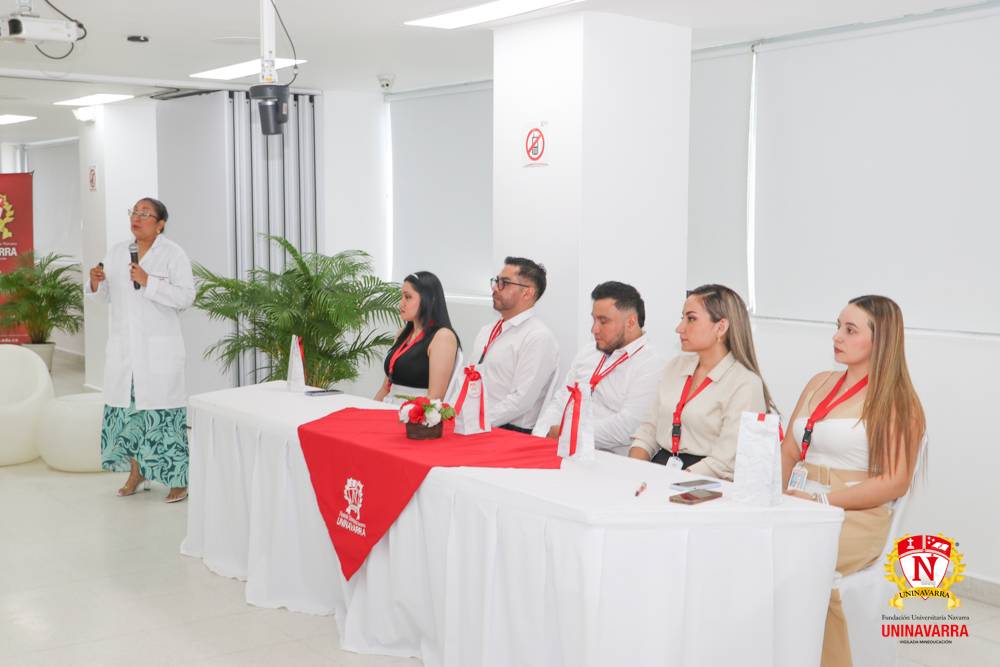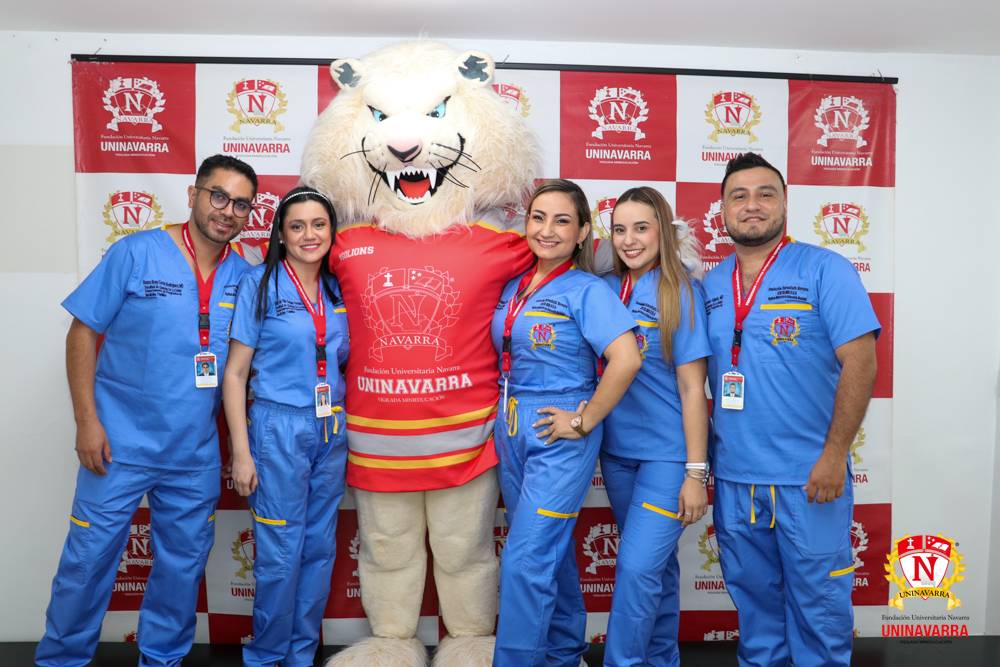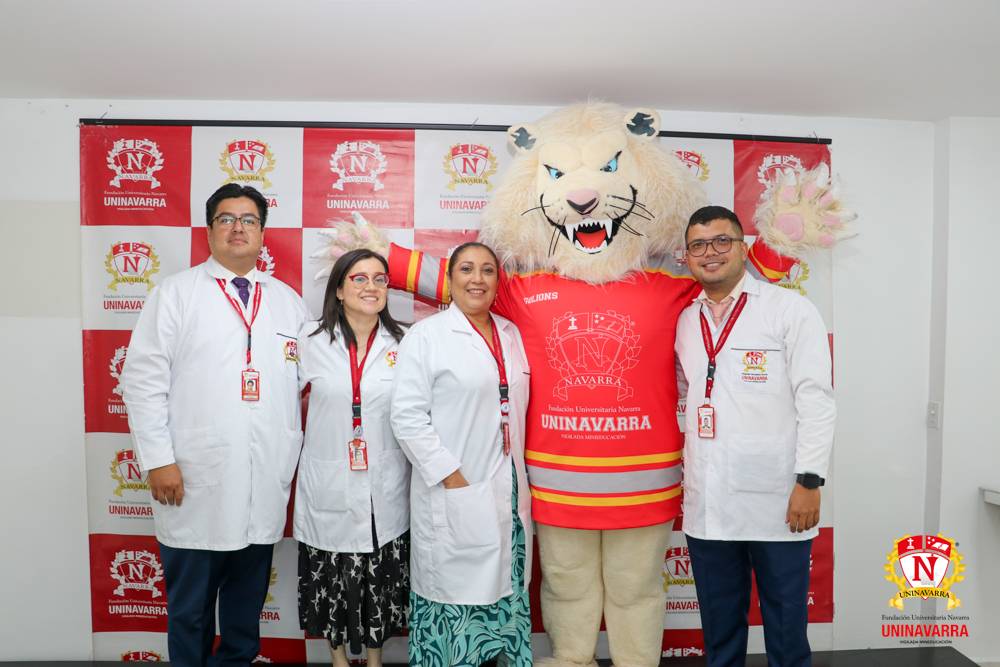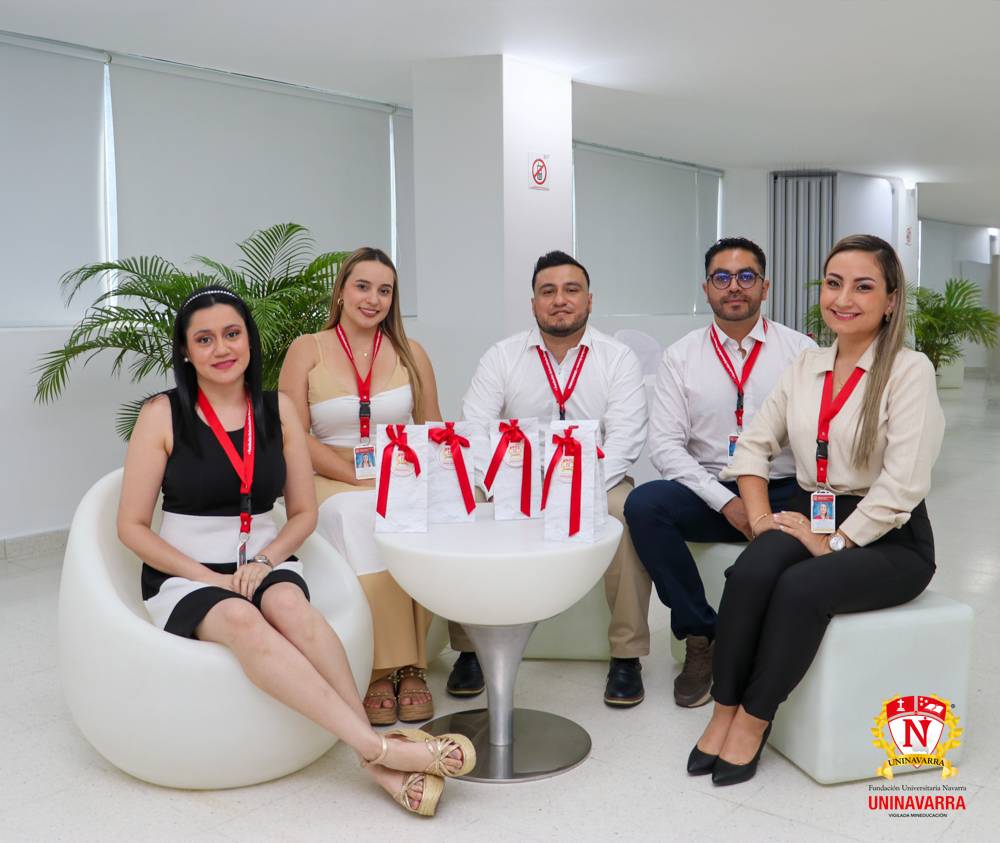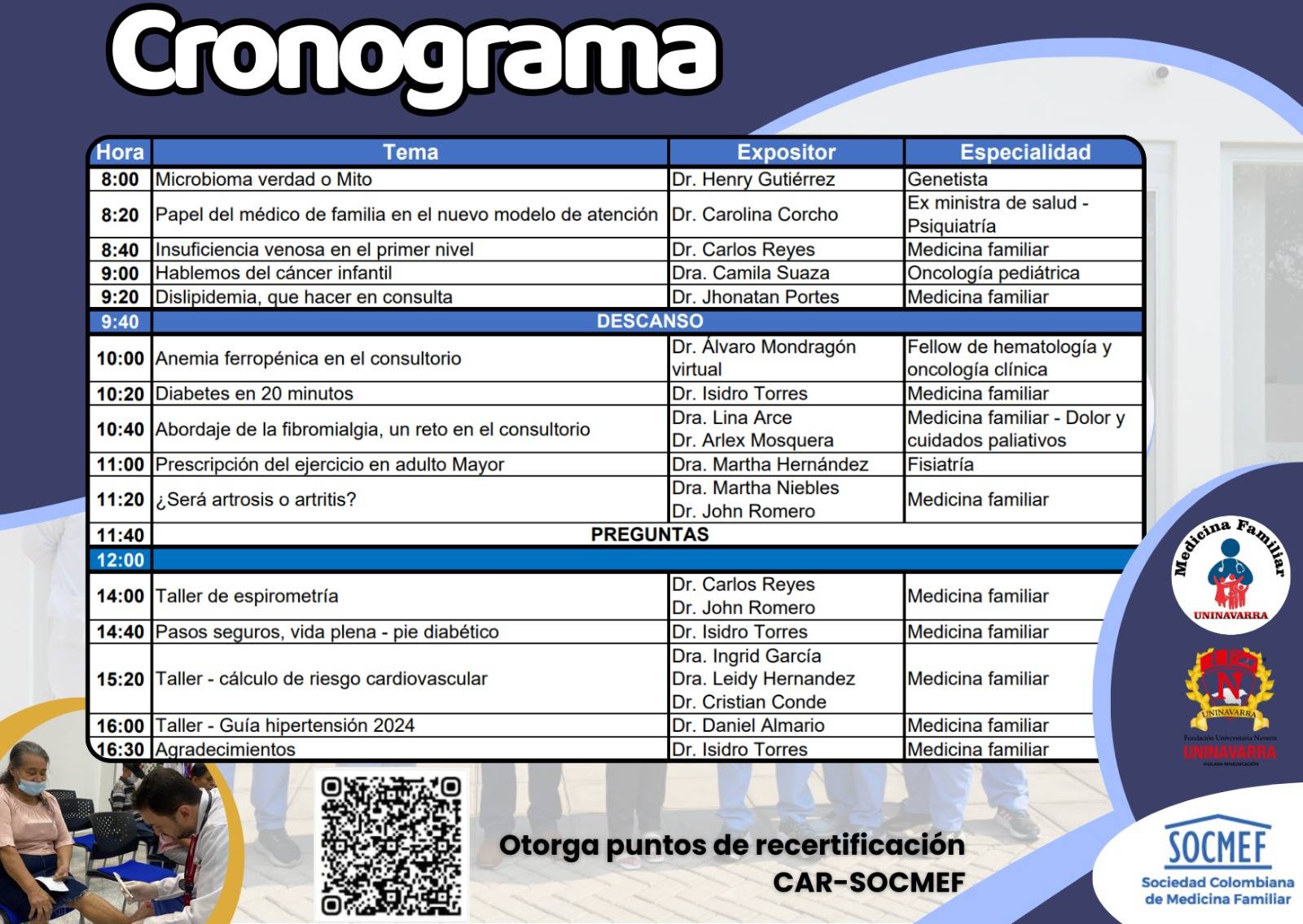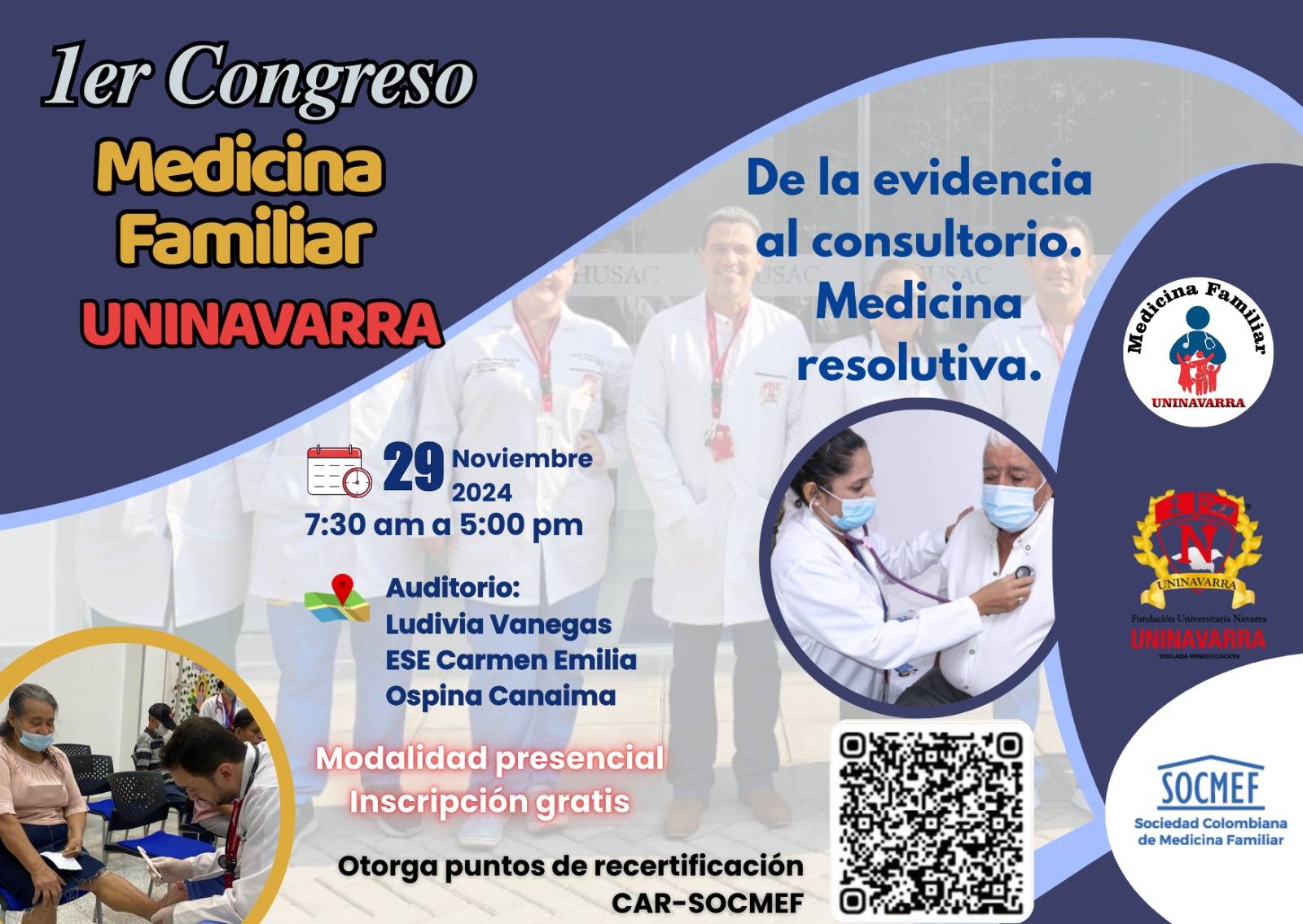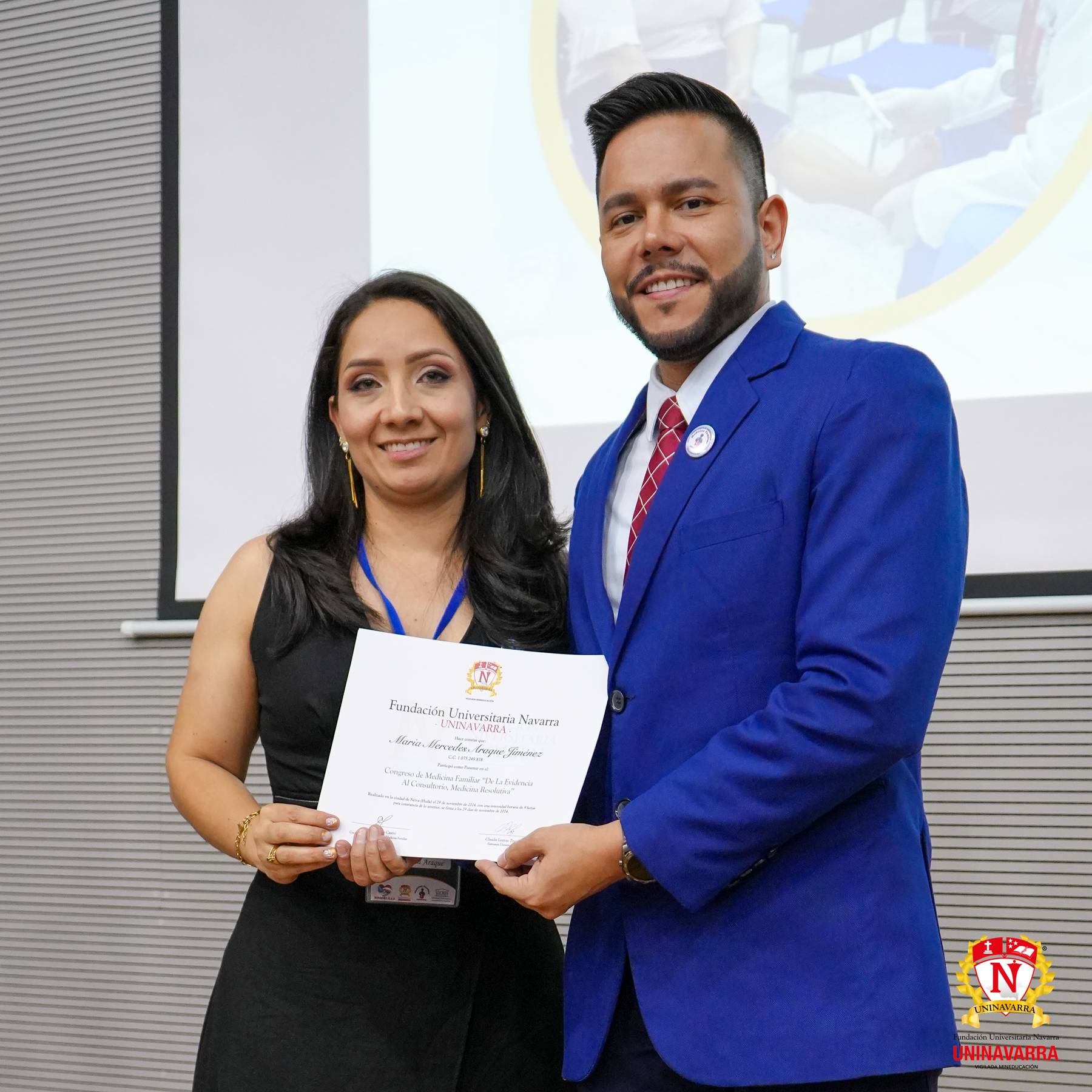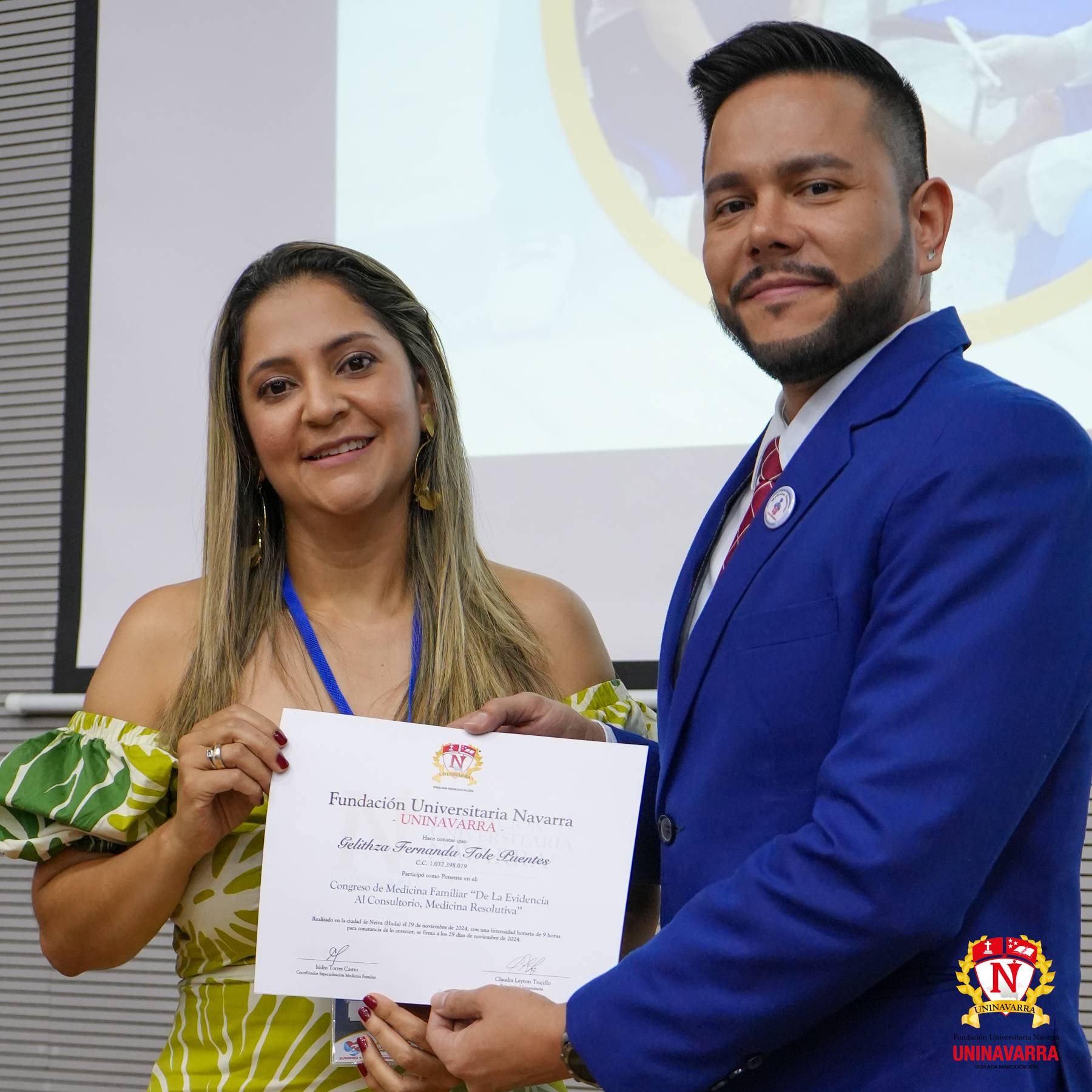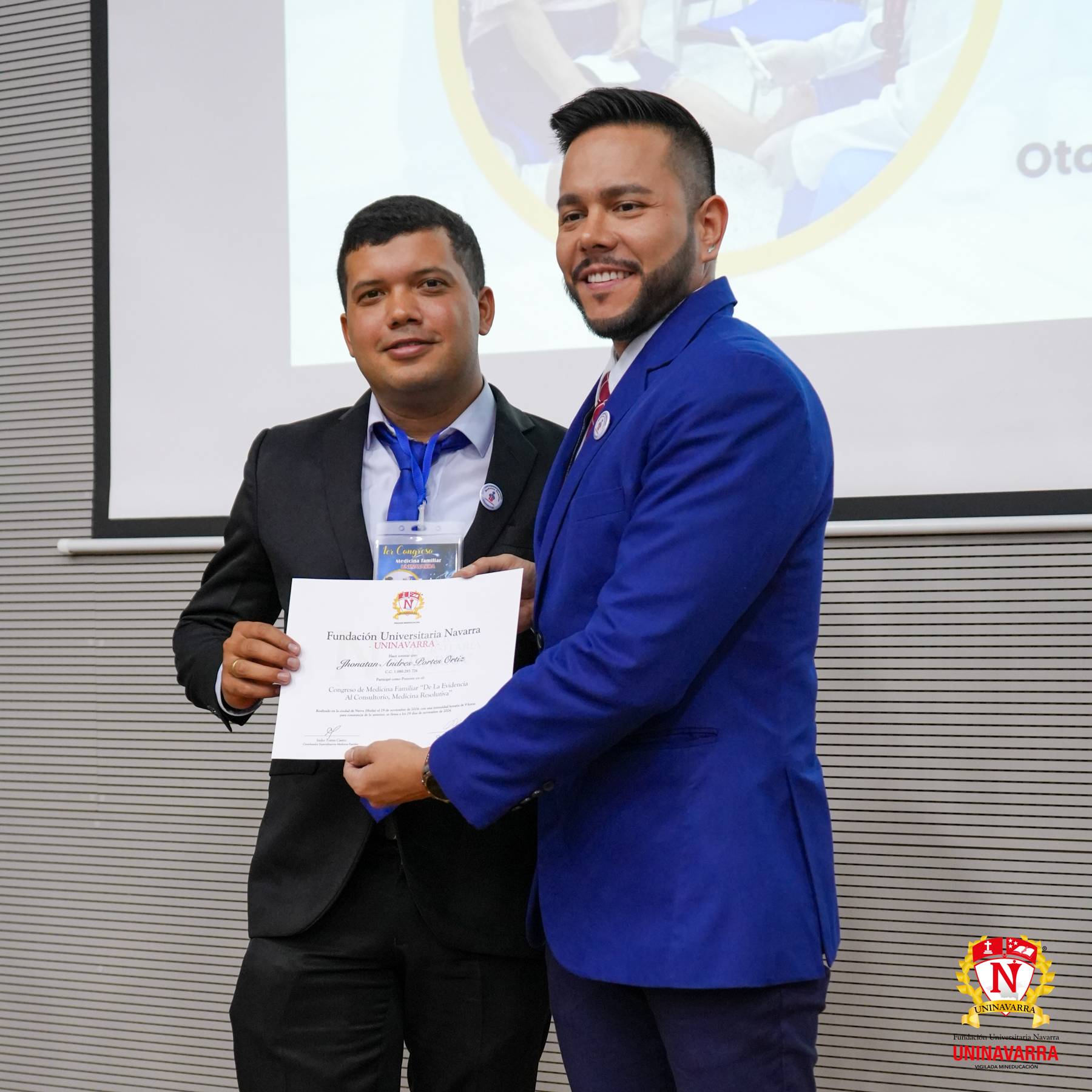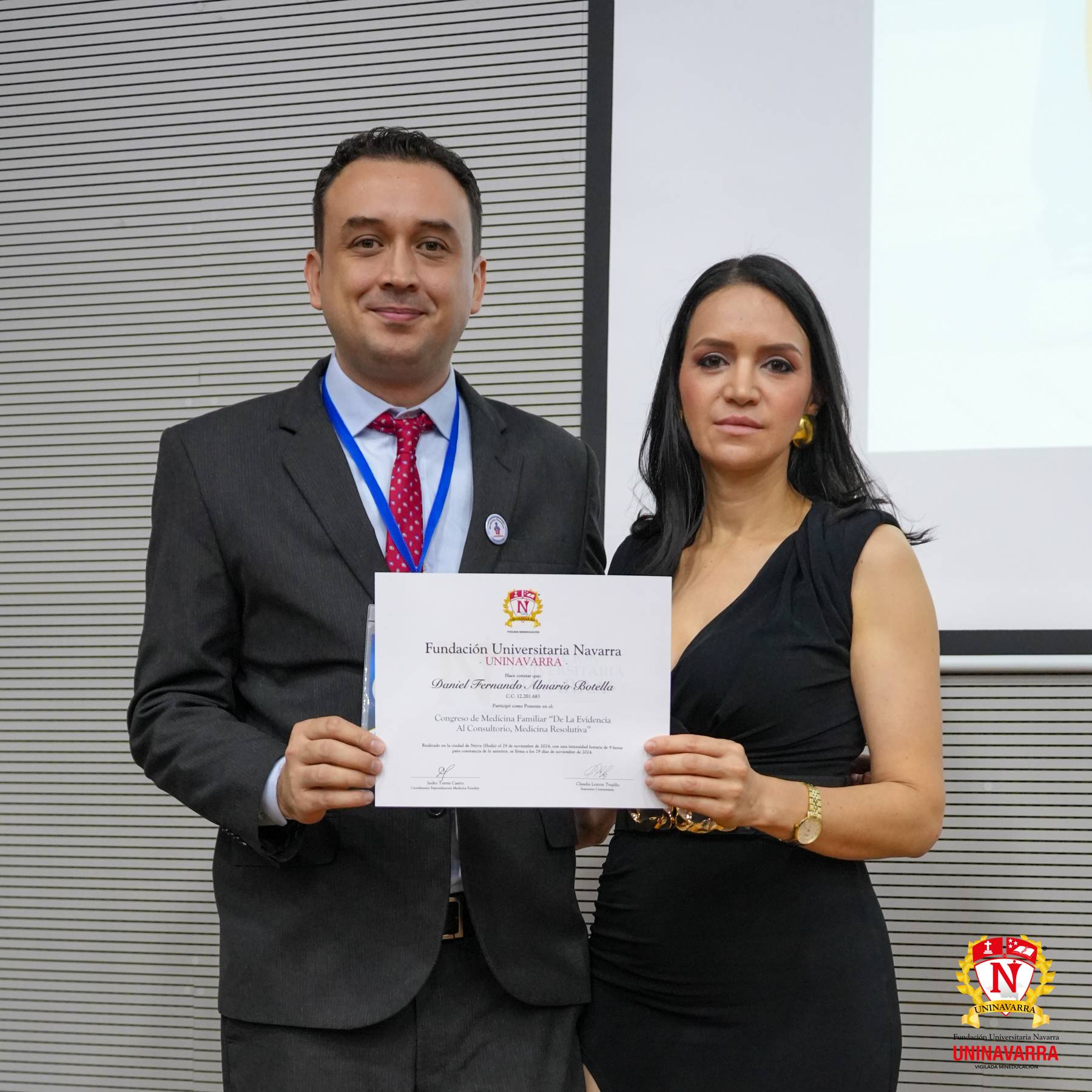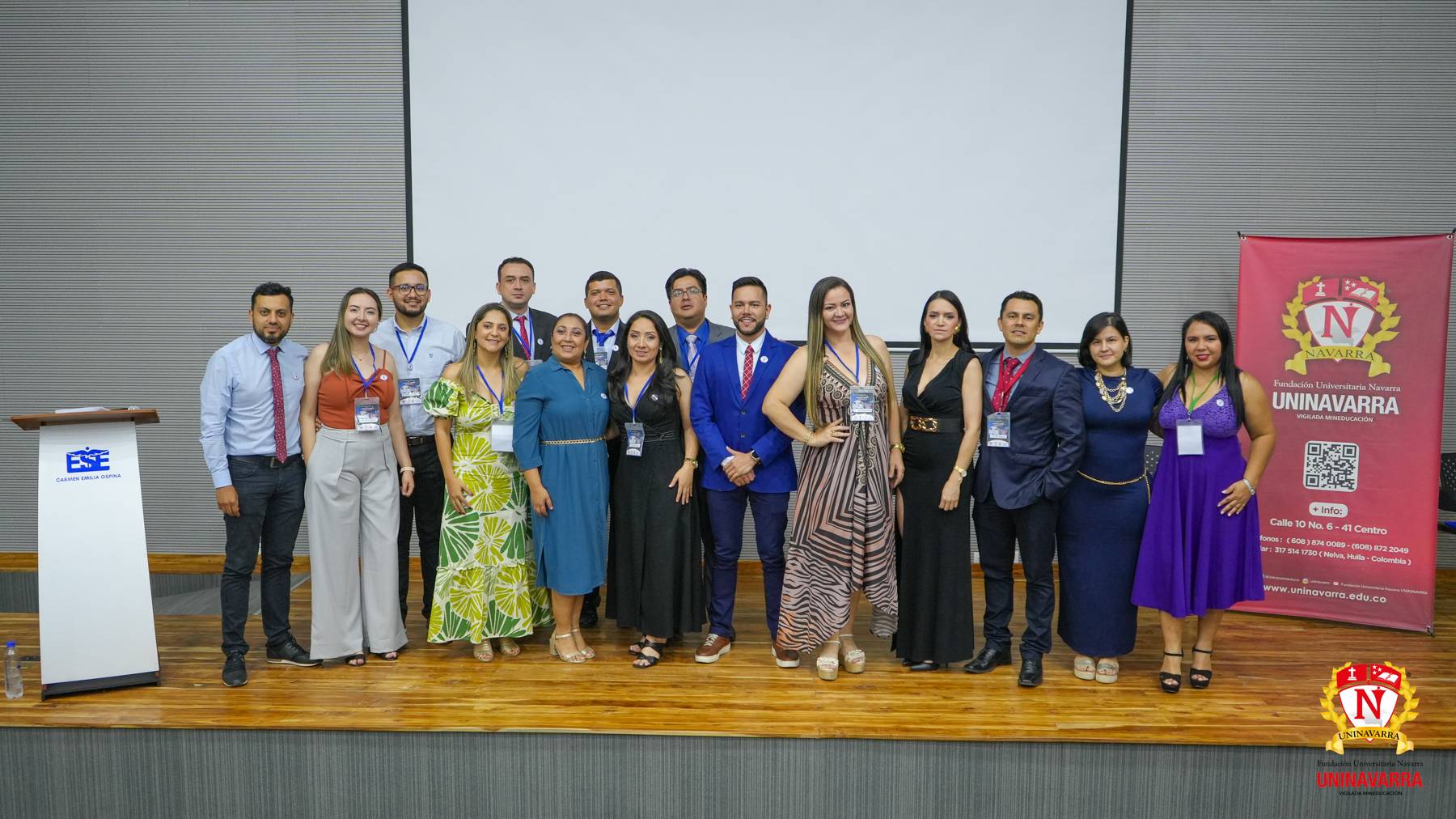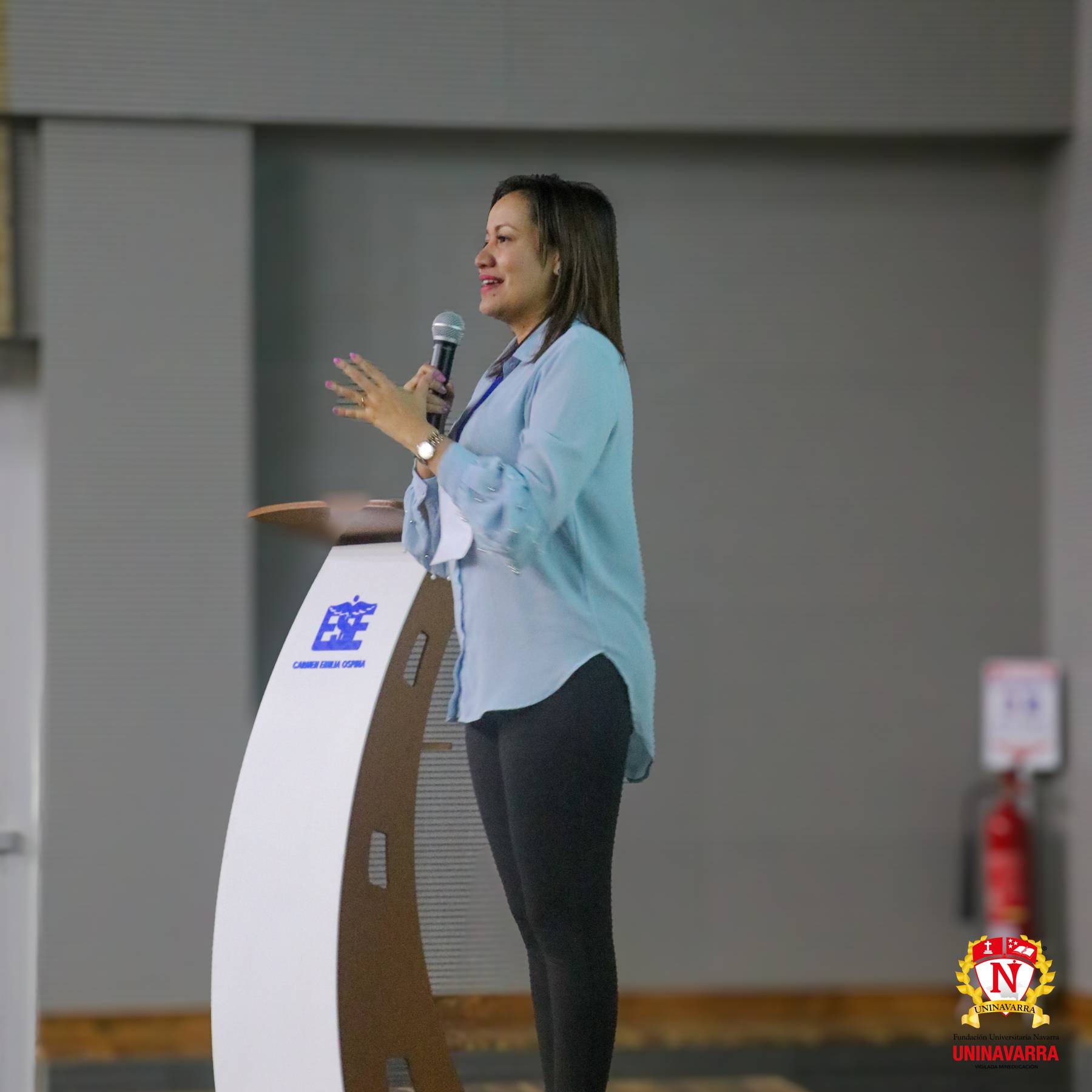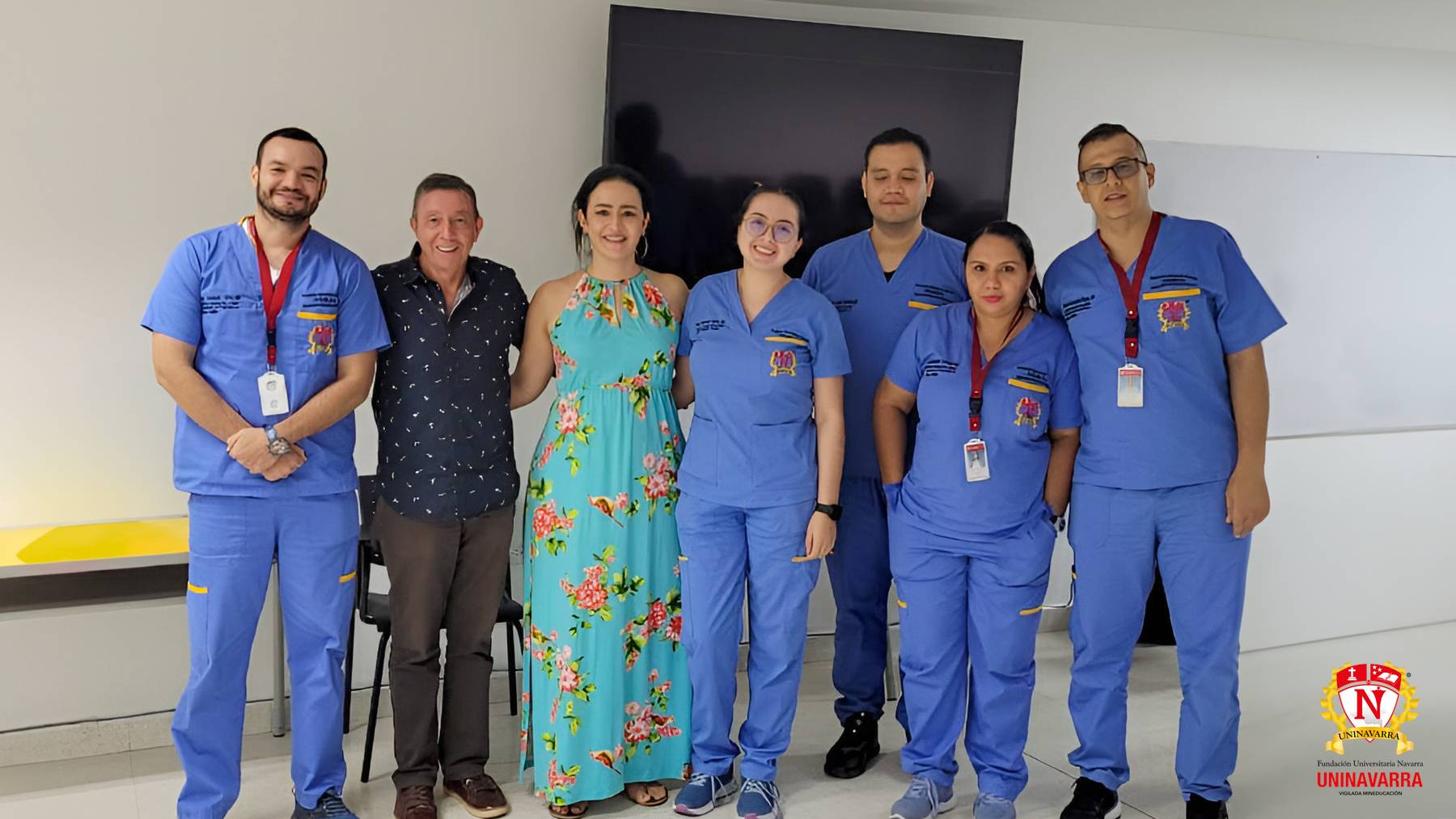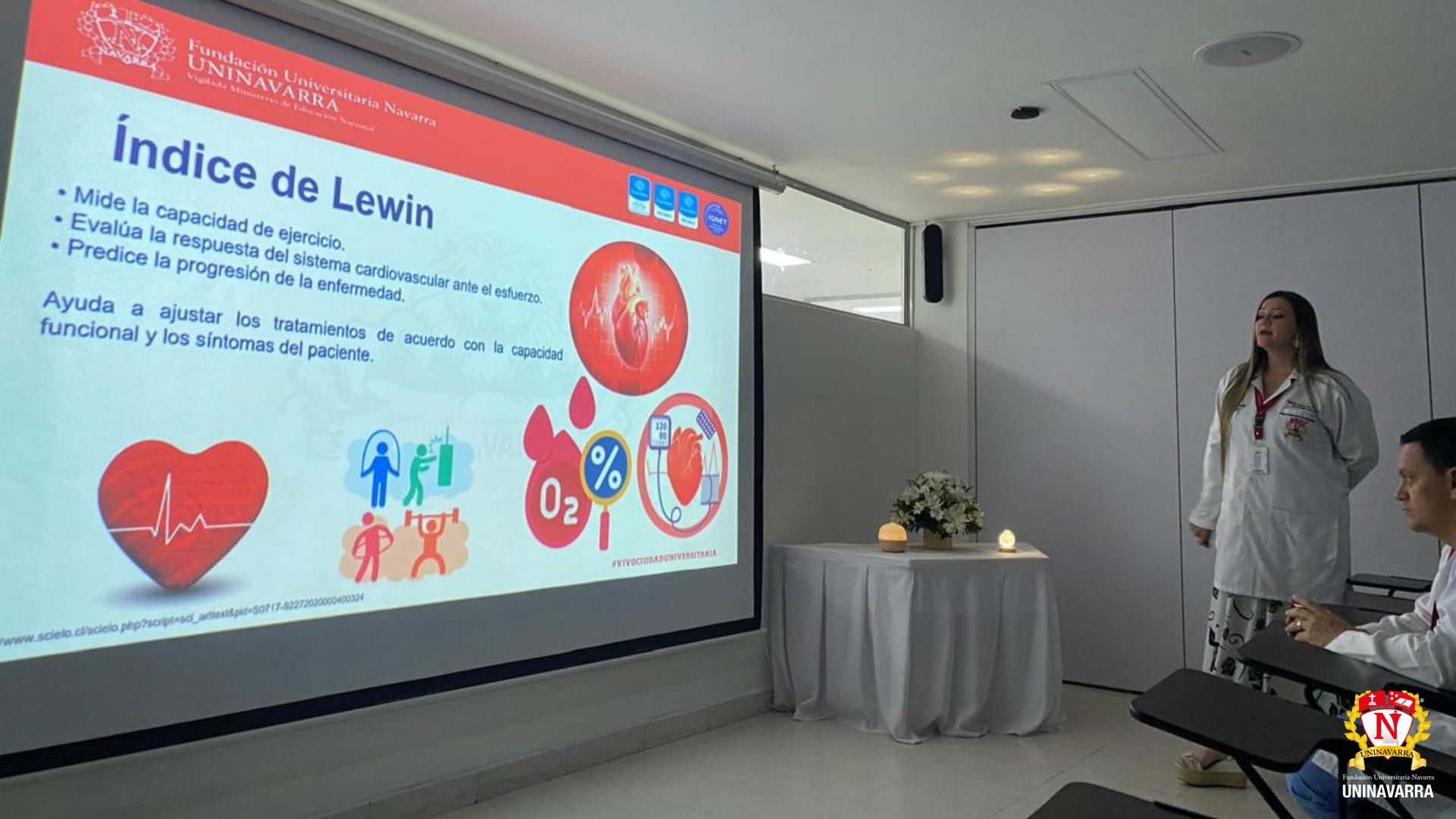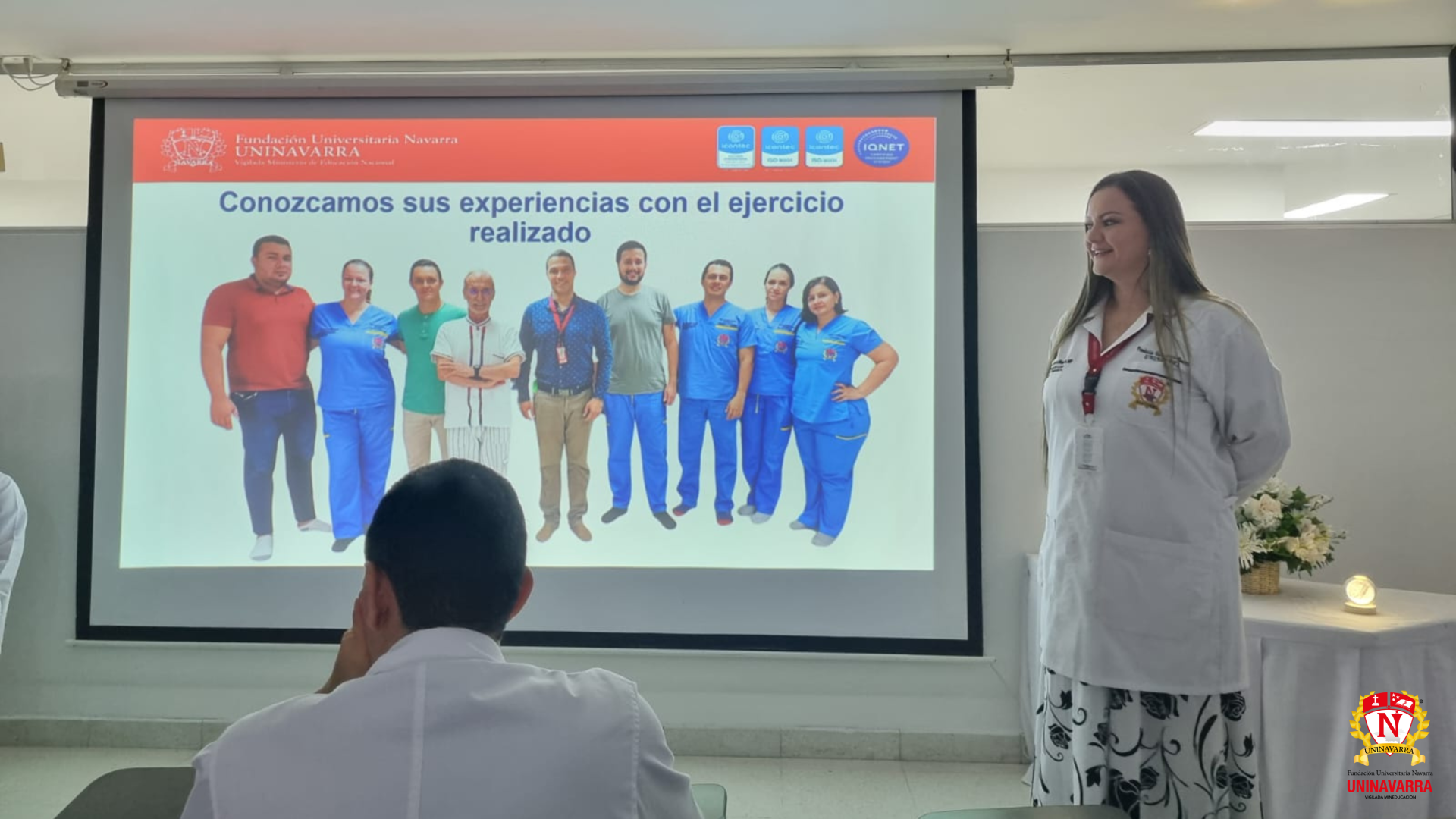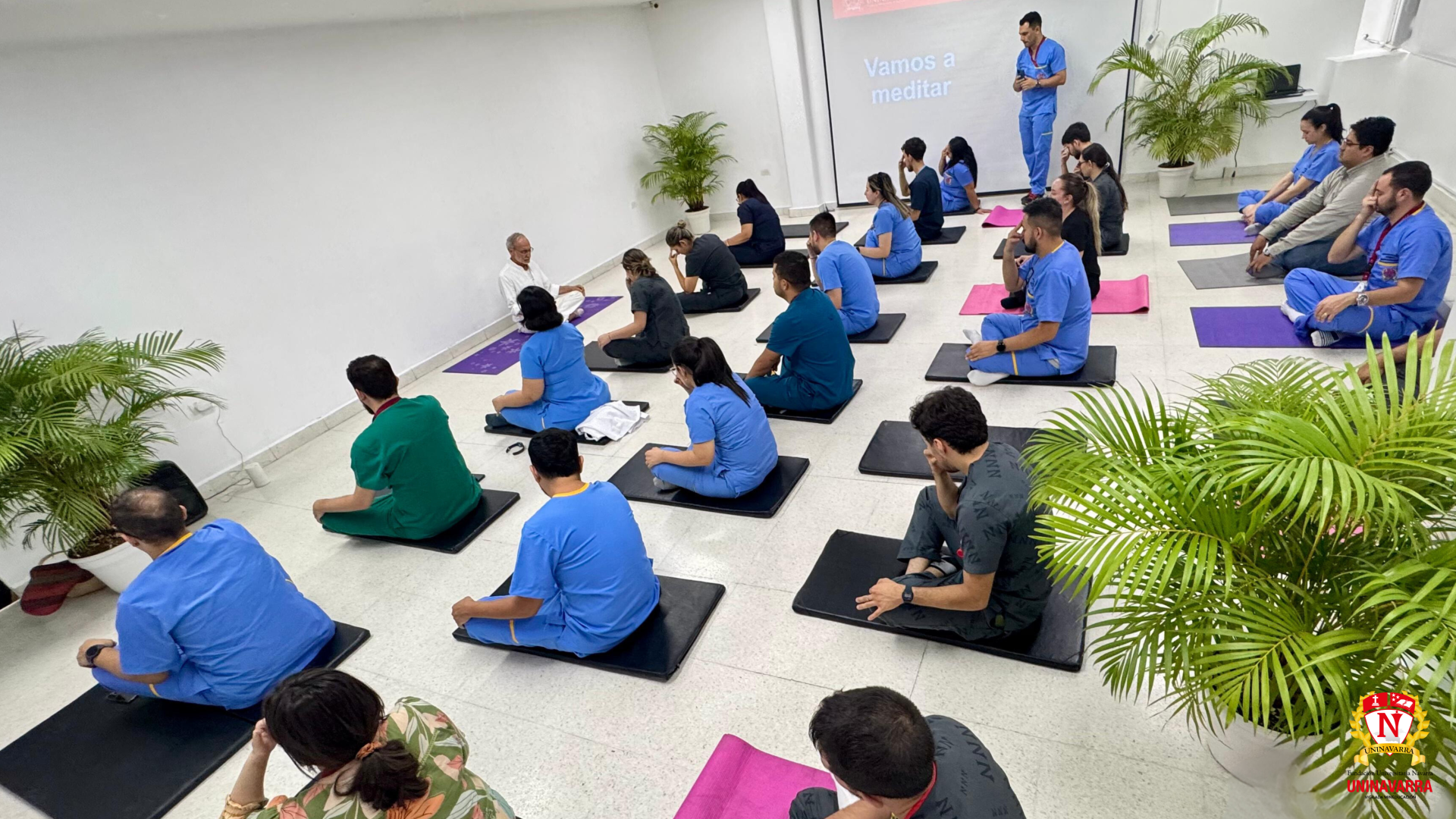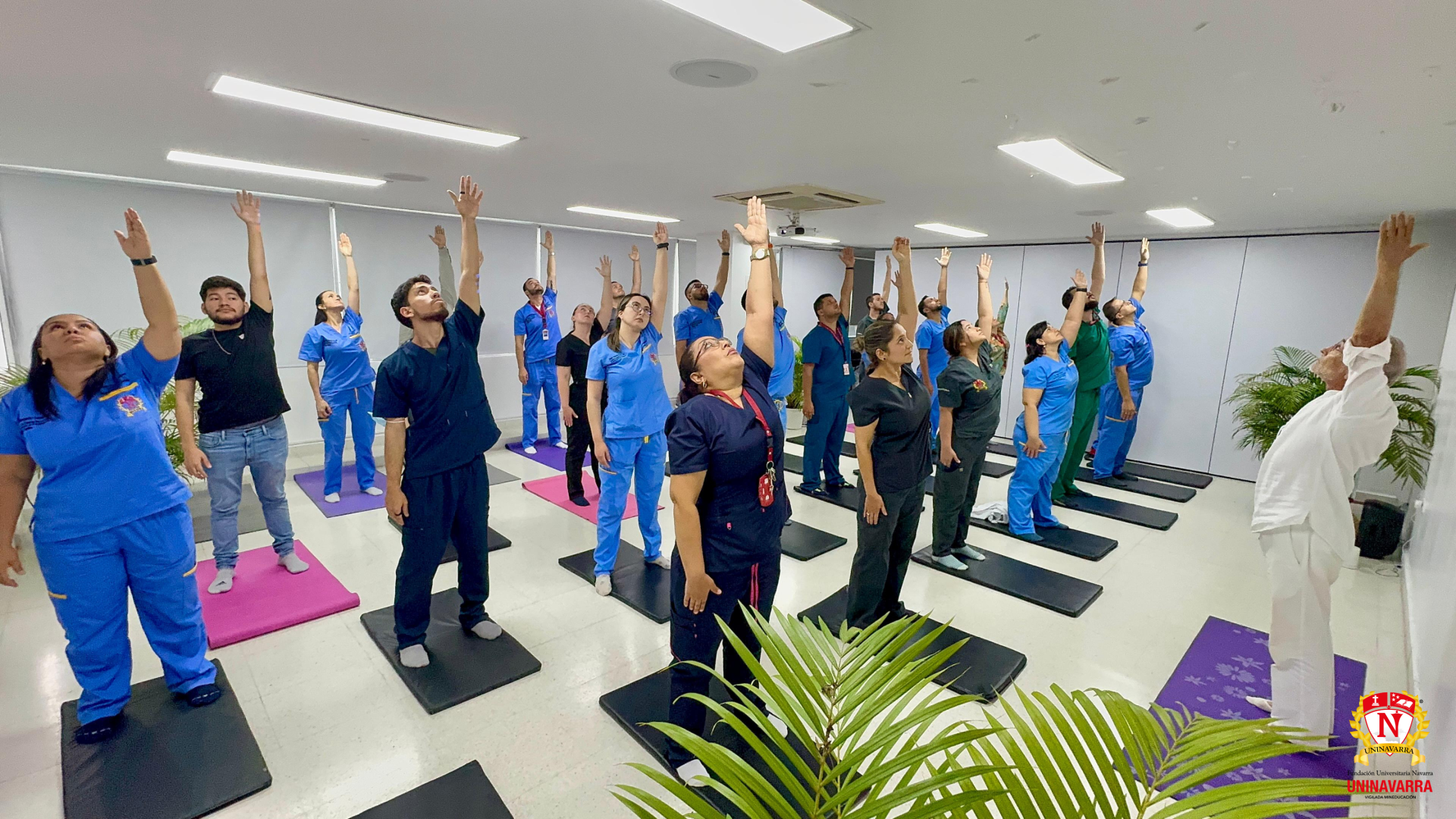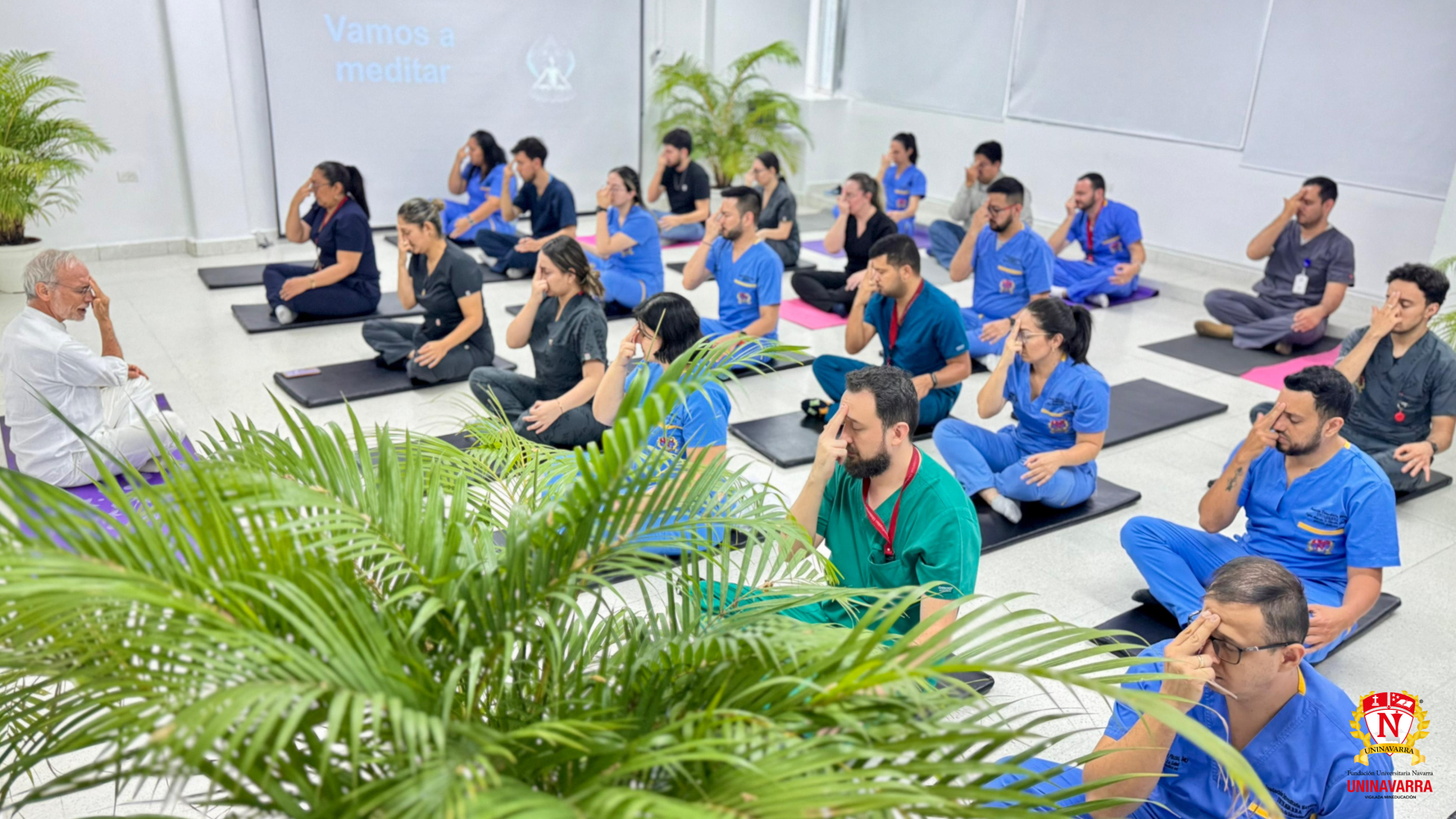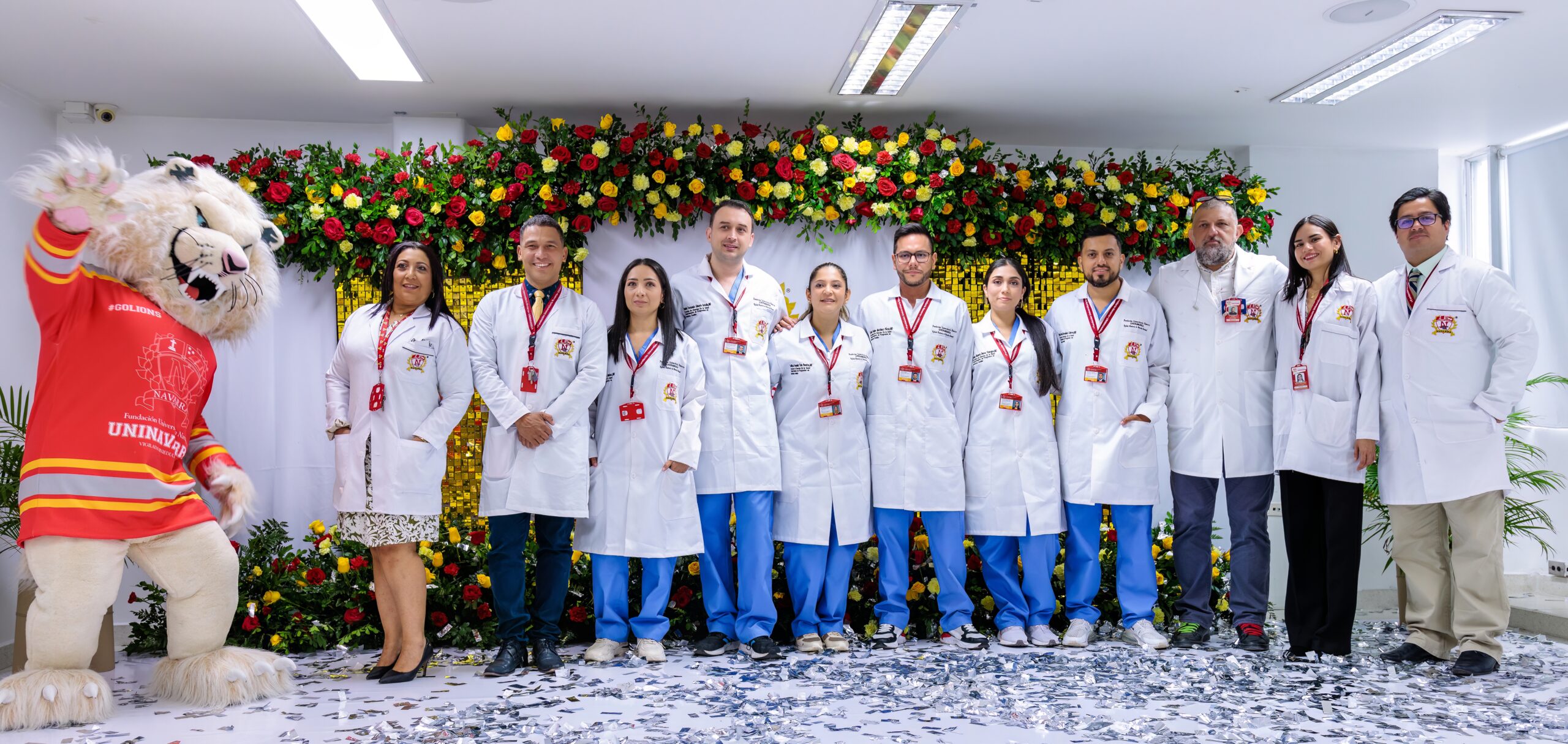| Title awarded: Family Medicine Specialist |
| SNIES Code 111582 |
| Qualified Registration: Resolution n.º 6812 of April 26, 2023 of the MEN, validity: 7 years. |
| Duration of the Program: 6 semesters |
| Number of academic credits: 198 |
| The program is attached: Faculty of Health Sciences and Basic Sciences |
| Academic Level: Postgraduate |
| Level of training: Medical-surgical specialization |
| Methodology: On-site |
| Location: Neiva, Huila, Colombia |
| Periodicity of admission: Semiannual |
| Contact us: +57 317 514 1730 - 8740089 - 8722049 - 8711199 |
Presentation of the program
Family Medicine, more than an area of medical knowledge, is an integrating axis of medical practice, which provides holistic and humanized medical care to the person; performing particular processes of characterization, validation of information, management, education and proposal of intervention strategies to focus them on primary health care from a systemic, generalist, differential and inclusive approach that promotes the care of the individual, his family and his community.
This specialization focuses its work on the person; involving the globality and complexity of the being, taking into account both the physical and psychosocial component of the individual and the determinants that modify and maintain their health. For family medicine, health is more than a state of "Well-being", it is the objective and subjective amalgam of factors that, from each of the individual and family life cycles, tend to the harmonious development and the experience of the individual immersed in a social sphere. For this reason, an ethnographic approach is involved where social, family and community relationships and the relationship with the disease itself are pillars of the care process. The ethnographic vision of Family Medicine allows the differential approach of the individual, the family and its cultural group, allowing the production of cost-effective strategies aimed at maintaining the health of specific groups according to their characteristics and needs.
The knowledge and work of the Family Medicine specialist is transversal to the different medical specialties, not as a professional hoarder of knowledge, but as an integrating specialist, mediator and coordinator of medical care, ensuring its resolvability and timeliness. His approach moves away from the separatist perspective and involves the generalization of medical knowledge to provide comprehensive care to individuals, families and communities.
The specialization in Family Medicine is the result of a need for holistic care based on the individual and not on the disease. Due to its principles and focus on prevention, it is a pioneer and fundamental support in integral processes of Primary Health Care and maintenance of the health of individuals, families and communities.
General requirements
According to the institutionally determined enrollment requirements, applicants to study a postgraduate Medical-Surgical program at UNINAVARRA must submit the following documents:
1. Registration form duly completed.
2. Receipt evidencing payment of registration fees.
3. Photocopy of the identity document (Citizenship Card / Alien Registration Card or passport).
4. If you are not Colombian you must bring your student or resident visa.
5. Resume with supports, including undergraduate transcripts incorporating internship (medical).
6. Accredit a university degree in one of the programs of the health area, in a Colombian Higher Education Institution duly recognized and authorized by the Ministry of National Education, or a foreign one recognized by the competent authority of the country of origin and whose degree is validated by the Ministry of National Education.
7. Mandatory Social Service Resolution
Specific requirements
As stated by AGREEMENT NUMBER 03 OF 2015 (May 25, 2015) of the Faculty Council of Health Sciences, which regulates the admission process for Clinical-Surgical Postgraduate Degrees, the following specific requirements were established for admission to the Specialization in Family Medicine program.
1. Evaluation of resume with supporting documents, including undergraduate transcripts incorporating the internship (medical).
2. Knowledge test with the characteristics determined by the institution.
3. Demonstrate proficiency in reading comprehension in English at the independent or intermediate level, i.e. level B1, through the mechanism established by the institution in the call for the admission process.
4. Interview.
5. Psycho-technical test.
Applicant Profile
To enter the postgraduate program, the applicant must have studied medicine and certify a medical degree as a graduate of a higher education institution recognized by the Ministry of National Education or abroad (for which he/she must provide the resolution of validation in which it is demonstrated that the program studied and the degree obtained is equivalent and recognized by the MEN in Colombia as a Physician).
The applicant's profile should demonstrate medical knowledge and interest in social aspects as determinants of health, sufficient for a good performance in the training process in the Family Medicine Specialization.
Must have social sensitivity and humanistic principles, showing interest in caring in an integral and continuous way to people, in the different life cycles, their families and communities in health matters. Willing to contribute with his/her work and professionalism in the reduction of health inequities.
Graduate profile
The specialist in Family Medicine, graduated from UNINAVARRA will be characterized by being a professional with a general knowledge base in medicine and with specialization in the maintenance of the health of the individual in their different life cycles.
A skilled specialist who is familiar with community immersion tools, public health policies and generates strategies that positively impact national health indicators.
A person-centered professional with the pluripotential resolution capacity to work in primary health care, hospital, emergency, rehabilitation, palliative care and administration of health services and policies.
An ethical community leader who will be highly committed to the region, the country and the research processes that generate knowledge in the areas concerning health and its determinants.
To fulfill this profile, the graduate physician will have the following attributes:
- Have a profound ability to establish a patient-physician relationship based on empathy, which will be transferred to his or her family and the community in which he or she is immersed.
- Given the characteristics of their training, they must have a high level of resolution and management skills. optimal prevalent health problems affecting different age groups, limiting the patient's mobility to more complex levels of care, which translates into the optimization and rationalization of health system resources.
- Their communicative and administrative skills enable them to act as leaders of the health care teams, facilitating the interaction of other medical specialties and other health care professional, focusing efforts on the wellbeing of individuals and the community environment.
- His ability to relate to the community, his ethnographic knowledge, his knowledge of and to investigate based on their needs, to be able to identify the problems and to and, based on its diagnosis, to focus its efforts on the education and training of the with a differential focus on self-care and self-knowledge.
- To have competences in adaptive processes to the particular characteristics of the environment, respecting the cultural, behavioral and communicative differences of the community.
- To be aware of the institutional support networks inherent to the community and its and of governmental and non-governmental programs that can be used to improve the quality of the as a support to the needs of the population, serving as a connector between them and the individual.
- Their work will be focused on health promotion and disease prevention, as a fundamental element that generates social change, taking into account the principle of the cost-benefit ratio, which is of vital importance in the face of health systems with extensive limitations. economic.
- Thanks to your knowledge in research and ICTS be able to create scientific information. and innovative strategies that it applies to research, education and transformation. individual and collective.
- It does not make presumptions about the individual, but rather, after a process of characterization involves the reality of the person and his or her context and uses simple tools that to evaluate, analyze and assist in the process of transformation of deleterious paradigms and motivates the process of adopting healthy habits, both physically and mentally, of self-care and mutual care.
- He is a human being concerned about ensuring that people regain their dignity in the whole process of care towards the improvement of their quality of life.
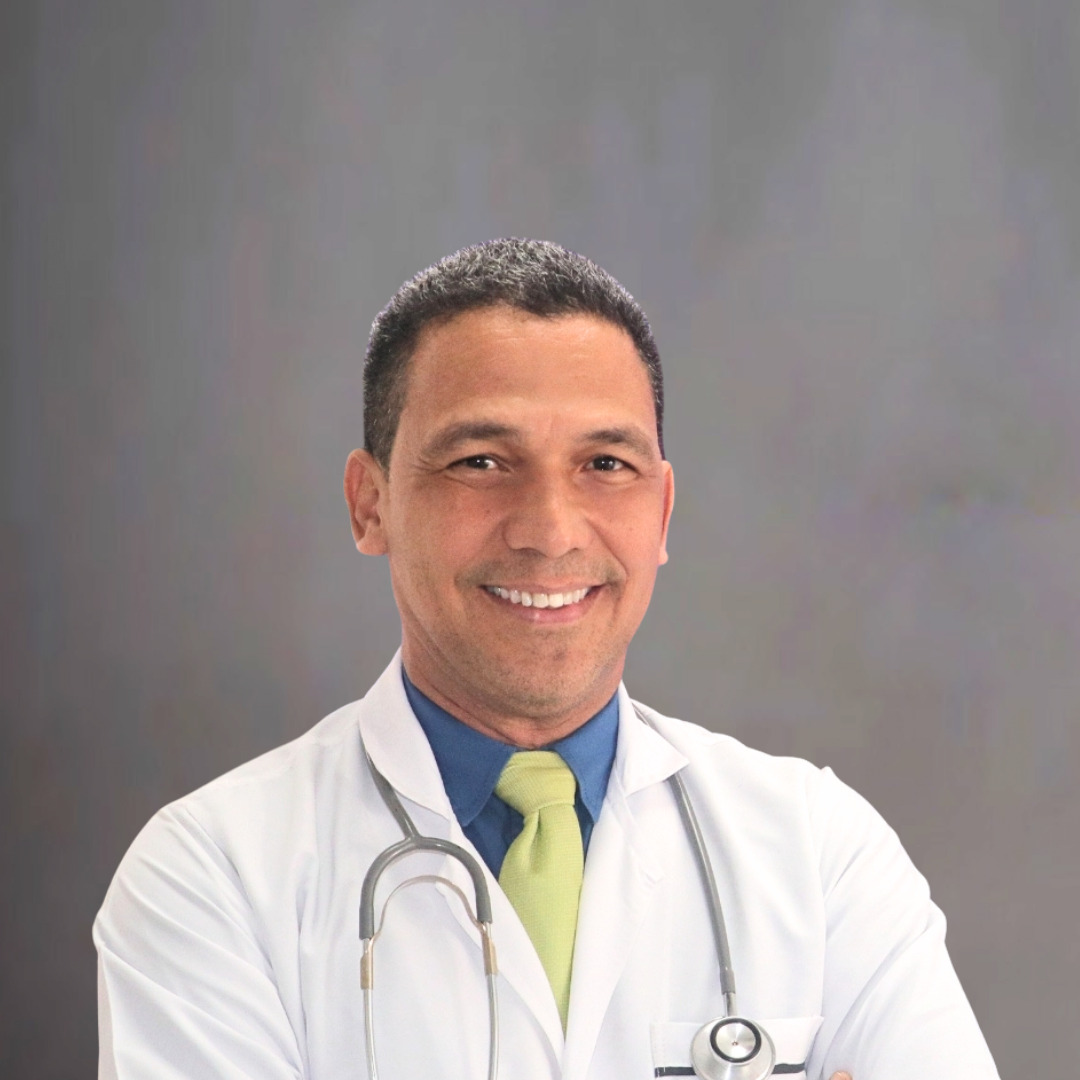
Dr. Isidro Torres Castro
COORDINATOR SPECIALIZATION IN FAMILY MEDICINE
Specialist in Family and Community Medicine Universidad de la Sabana. Specialist in University Teaching Fundación Universitaria Navarra-UNINAVARRA. Specialist in Management and Auditing of Health Organizations Universidad Iberoamericana. Neurolinguistic Programming Instructor. ASEIA.

Dr. Martha Estella Niebles Coronell
Professor of Family Medicine Specialization Fundación Universitaria Navarra - UNINAVARRA. Specialist in Comprehensive Family Medicine - Juan N. Corpas University Foundation. Specialist in University Teaching - University Foundation of Navarra - UNINAVARRA.
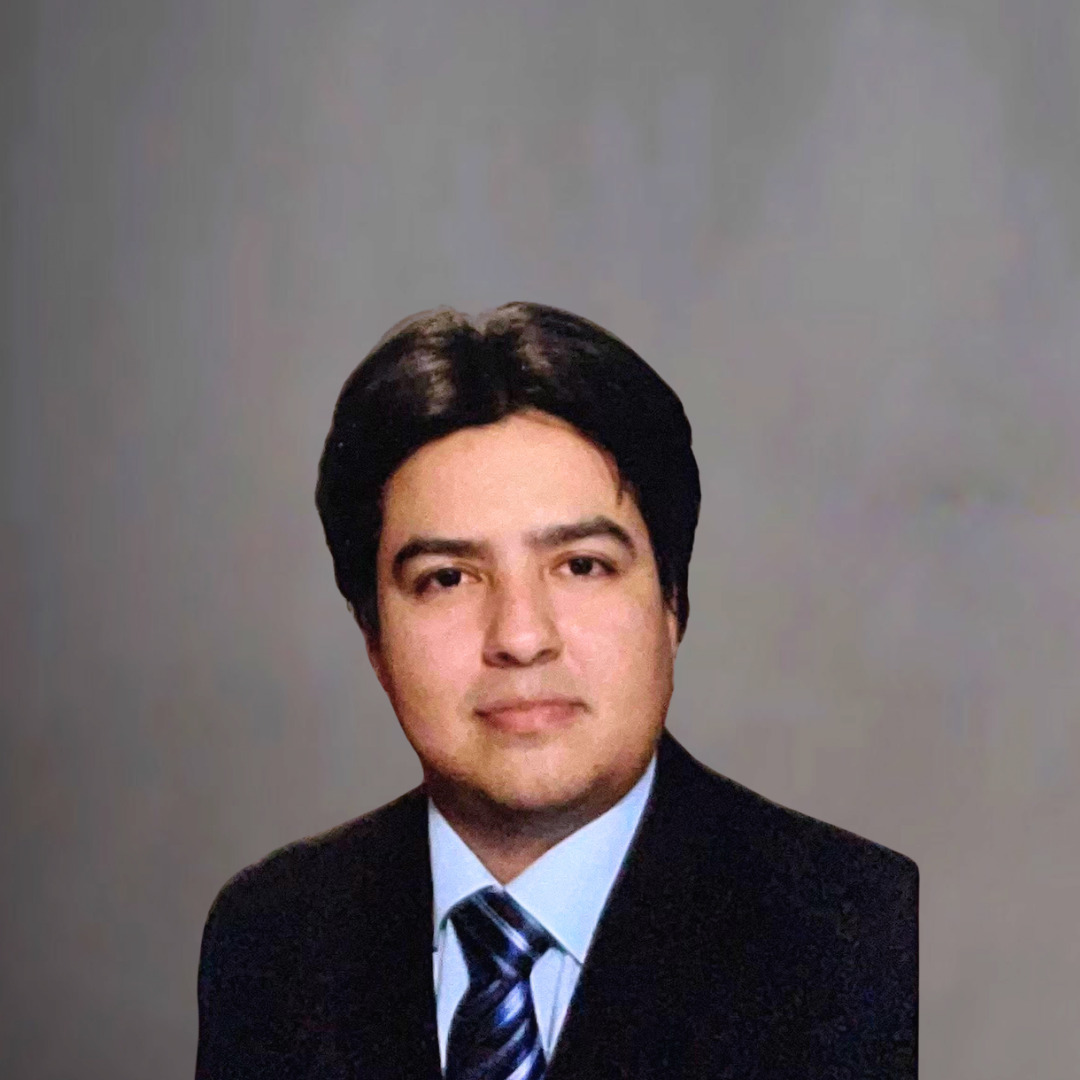
Dr. Carlos Humberto Reyes Guio
Professor of Family Medicine Specialization Fundación Universitaria Navarra - UNINAVARRA. Specialist in Family and Community Medicine - Universidad de La Sabana. Diploma in University Teaching - Universidad de La Sabana.
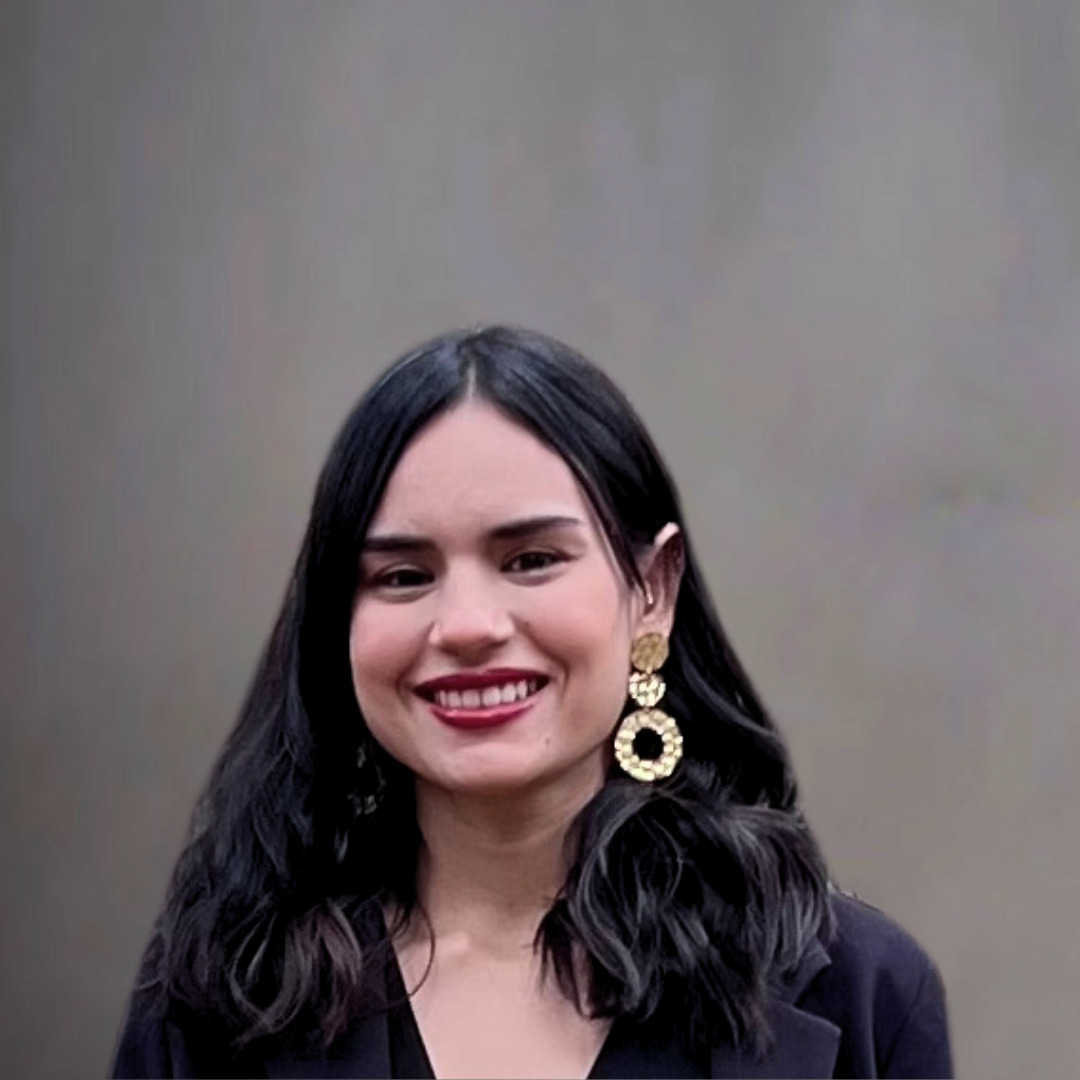
Dr. María del Pilar Leal Vargas
Professor of Family Medicine Specialization Fundación Universitaria Navarra - UNINAVARRA. Specialist in Family Medicine - Pontificia Universidad Javeriana. Diploma in University Teaching - University Foundation UNINAVARRA.
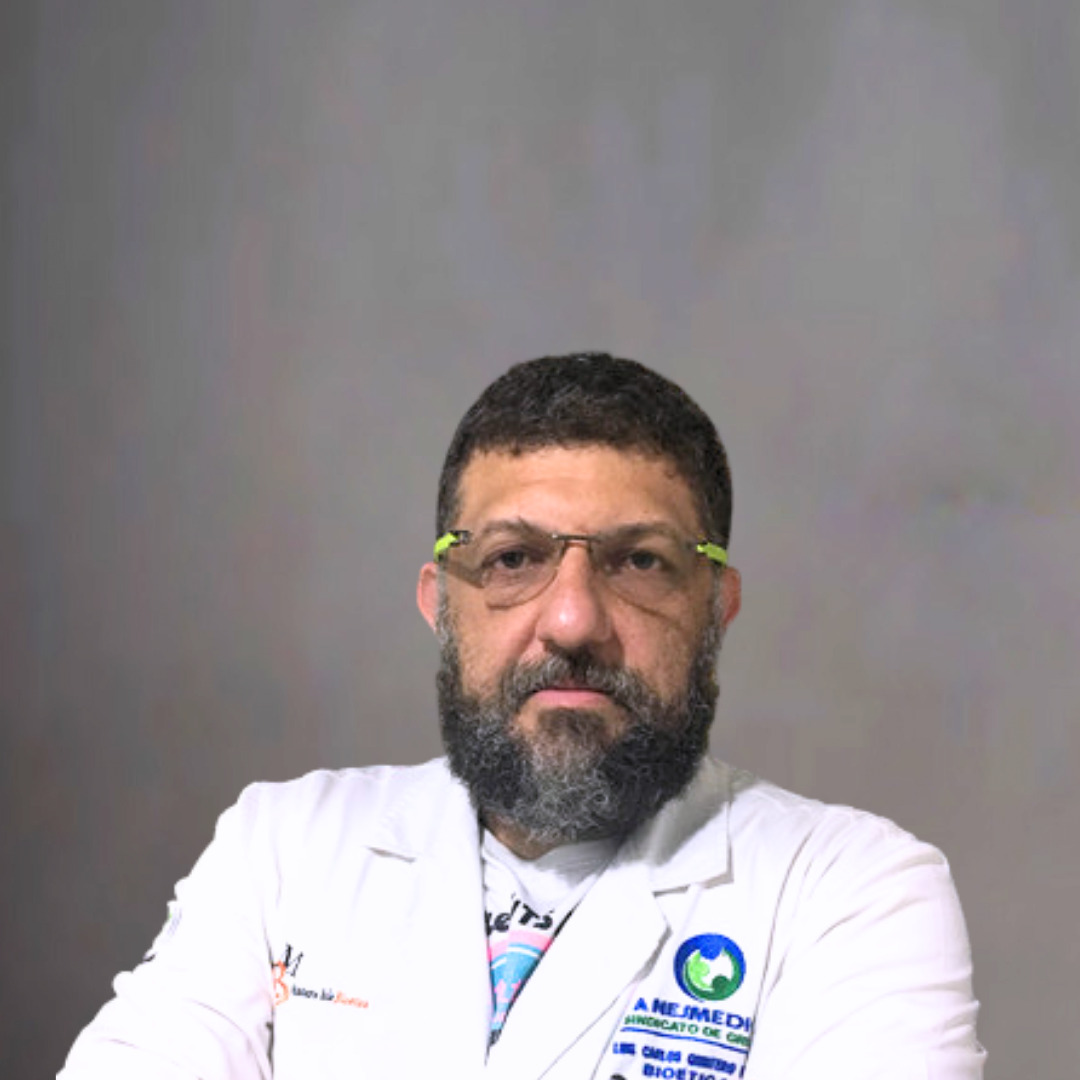
Dr. Luis Carlos Quintero Malo
Medical Doctor with Specialization and Master in Bioethics. Diploma in Human Rights and Diploma in Medical Sexology.

Dr. Ingrid Carolina García Ayala
Professor of Family Medicine Fundación Universitaria Navarra-UNINAVARRA. Specialist in Family Medicine Pontificia Universidad Javeriana. Specialist in Teaching for Higher Education; Universidad de Ciencias Aplicadas y Ambientales- UDCA. Candidate Master in Clinical Pharmacology. University Foundation of Health Sciences- FUCS.

Dr. Jhonatan Andres Portes OrtizDr. Jhonatan Andres Portes Ortiz
Specialist in Family Medicine from Universidad El Bosque. Specialist in Epidemiology from Universidad Surcolombiana.
CUARTA COHORTE DE RESIDENTES DE MEDICINA FAMILIAR – 10 DE ENERO DE 2025
El pasado 10 de enero de 2025, entre las 2:00 p.m. y 5:00 p.m., se llevó a cabo la ceremonia de inducción para la cuarta cohorte de residentes del programa de Medicina Familiar de la Fundación Universitaria Navarra (UNINAVARRA). Este evento marcó el inicio oficial del proceso formativo de los nuevos integrantes del posgrado, seleccionados tras un riguroso proceso que incluyó pruebas de conocimiento, inglés, análisis de hojas de vida y pruebas psicotécnicas. Esta cohorte está conformada por cinco residentes provenientes de diferentes universidades nacionales: dos egresados de la Fundación Universitaria Navarra Uninavarra, lo que representa un gran honor para nuestra institución, un egresado de la Universidad San Martín en Pasto, otro de la Surcolombiana y un último de la Universidad Cooperativa de Colombia sede Villavicencio.
La actividad comenzó con palabras de bienvenida a cargo de la Dra. Sandra Navarro, rectora de UNINAVARRA, quien resaltó el compromiso institucional con la formación de médicos especialistas en Medicina Familiar. Posteriormente, la coordinadora encargada del programa Dra. Martha Niebles, ofreció unas palabras de motivación y realizó una presentación general sobre la especialización, destacando el perfil académico y profesional del Dr. Isidro Torres Castro coordinador oficial del posgrado.
El Dr. Carlos Reyes, en representación del equipo docente, presentó el perfil de cada uno de los profesores que acompañarán a esta cohorte, incluyendo al Dr. Jhonatan Portes, la Dra. Ingrid García y la Dra. Martha Niebles. Además, el Dr. Ricardo Novoa, líder del CINNA, ofreció una completa inducción sobre las oportunidades y recursos en investigación que los residentes podrán aprovechar durante su formación.
La Dra. Tatiana Acevedo lideró la inducción sobre gestión académica, brindando orientación sobre el manejo de las plataformas institucionales. También participaron el equipo de Bienestar Universitario, que destacó los servicios y programas diseñados para el bienestar integral de los estudiantes, y los departamentos de TICs y Biblioteca, quienes explicaron las herramientas tecnológicas y bibliográficas disponibles para apoyar su desarrollo académico.
Durante la jornada la Dra. Martha Niebles presentó las actividades de proyección social del programa de Medicina Familiar, destacando la importancia de la formación médica orientada hacia el impacto comunitario. El evento cerró con una sesión de fotos grupales con los nuevos residentes, los docentes presentes y Navarrito, la mascota oficial de UNINAVARRA, en un ambiente de integración y entusiasmo.
Este grupo de futuros médicos familiares llega con grandes expectativas y la motivación de contribuir al fortalecimiento de la salud integral en las comunidades colombianas. Con el respaldo de UNINAVARRA y un equipo docente comprometido, inician su camino hacia la excelencia en el campo de la Medicina Familiar.
Primer Congreso de Medicina Familiar, de la evidencia al consultorio
Luego de un proceso de preparación exhaustivo, escogencia de ponentes, los residentes y docentes de la especialización en Medicina Familiar de la Fundación Universitaria Navarra-UNINAVARRA realizaron el primer Congreso de Medicina Familiar, avalado por SOCMEF (Sociedad Colombiana de Medicina Familiar) , en la región sur colombiana.
Este magnífico evento se llevó a cabo el día 29 de noviembre en una jornada de 10 horas de aprendizaje continuo, en el auditorio Ludivia Vanegas de la ESE Carmen Emilia Ospina. Se contó con la participación de expositores de alto nivel como fueron: Henry Javier Gutiérrez (Genetista), Carolina Corcho (Ex ministra de salud), Camila Suaza (Oncóloga pediatra), Álvaro Mondragón (Fellow de hematología y oncología clínica), Arlex Mosquera (Especialista en dolor y cuidado paliativo) y Martha Hernández ( Fisiatra). También se contó con las excelentes ponencias de los especialistas en Medicina Familiar Lina Arce, Isidro Torres, Carlos Reyes, Martha Niebles, Johnatan Portes e Ingrid García. Igualmente, los residentes de Medicina Familiar María Araque, John Romero, Leidy Hernández, Daniel Almario y Cristian Conde, Wilmer Esquivel hicieron su aporte liderando los talleres realizados.
La evaluación de los asistentes fue satisfactoria y se cumplió el objetivo principal del congreso que fue mostrar en 20 minutos lo que el médico resolutivo puede realizar en su consulta diaria con respecto a los temas tratados.
Movilidad entrante en la asignatura de salud pública
La profesional Viviana Carolina García, Enfermera, Especialista en Epidemiología y Magíster en salud mental y profesional de vigilancia epidemiológica de la Secretaría de Salud Departamental en eventos transmitidos por vectores, participó como docente invitada. Esta importante contribución a la formación de los residentes de primer semestre de Medicina Familiar se realizó el día 17 de diciembre de 2024 en las instalaciones de la Fundación Universitaria Navarra-UNINAVARRA.
En esta clase se realizaron procesos de actualización en lo concerniente a patologías como dengue, zika, fiebre amarilla entre otros. Se revisaron procesos epidemiológicos, mecanismos de reporte, diagnóstico, manejo oportuno y acciones preventivas.
Meditation and health
Meditation, an ancient practice originating in traditions such as Buddhism and Hinduism, has become a scientifically supported tool for improving physical and mental health. Several studies have shown its positive impact on stress management, emotional regulation and overall well-being. It is a tool to be taken into account for the integral management of patients.
Worldwide, approximately 500 million people practice some form of meditation, and its popularity continues to grow. According to a study by the National Center for Health Statistics (NCHS) in the United States, meditation use among adults increased from 4.1 % in 2012 to 14.2 % in 2017, demonstrating a growing interest in this noninvasive and accessible practice.
In Colombia, meditation is gaining ground as part of corporate wellness and public health programs. Although there is no specific national data on the number of practitioners, a report by the Pan American Health Organization (PAHO) highlights that 41 % of Colombians suffer from chronic stress, which has prompted the inclusion of techniques such as mindfulness in psychological therapies and educational programs.
In order to show changes in the physiology of individuals, a study was conducted with second semester residents, comparing baseline and post-meditation states, evaluating different variables. Here, an evident improvement in lung volumes measured by spirometry, in cardiac variability with modulated breathing during one minute and in maximum strength quantified by the hangrip was demonstrated, which shows the great changes with just one meditation session.
These were some of the topics covered by second semester resident Jane Korine Guevara Manchola, in her great creative session, held on November 8, 2024.
Why study the Specialization in
Family Medicine at UNINAVARRA?
You will receive medical training with a holistic and humanized approach: Family medicine focuses on providing comprehensive, person-centered care, considering both physical and psychosocial aspects. This holistic approach ensures that all of the patient's needs are addressed and their well-being is promoted as a whole.
We promote prevention and health promotion: Family medicine focuses on disease prevention and promoting healthy lifestyles. Family physicians play a key role in educating patients about the importance of prevention and designing intervention strategies to maintain long-term health.
We understand the importance of primary health care: Family medicine is fundamental to primary health care, being the gateway to the health care system for many people. Family physicians are experts in the early detection of disease, the management of chronic conditions and the monitoring of patients' general health.
At UNINAVARRA, we have advanced resources for training in family medicine. The High Complexity Simulated Hospital (HUSAC) gives students the opportunity to practice in a realistic environment with state-of-the-art technology. In addition, we have strategic alliances with important health institutions, such as the Medilaser Clinic, so that students can perform professional practices in a quality clinical environment.
If you are interested in providing comprehensive medical care and being an agent of change in people's health, the specialization in family medicine at UNINAVARRA will provide you with the necessary tools and knowledge to excel in this vitally important field.
